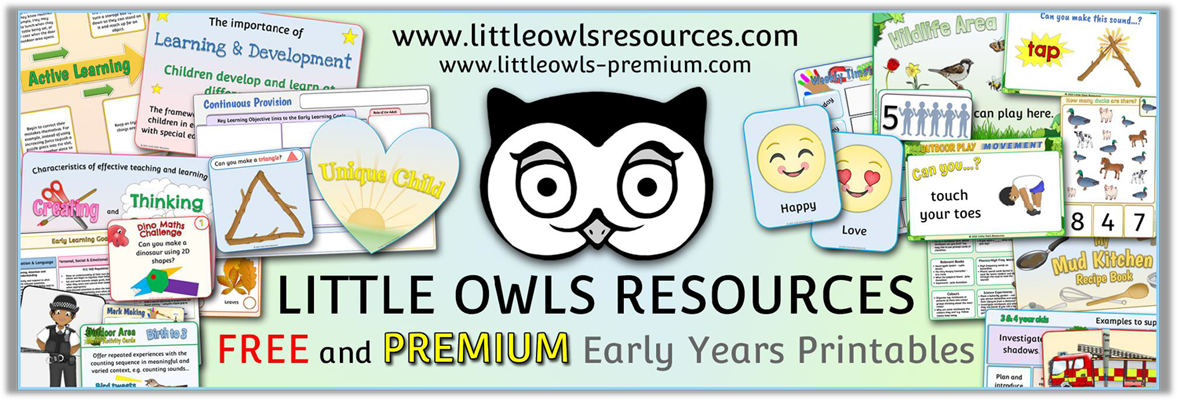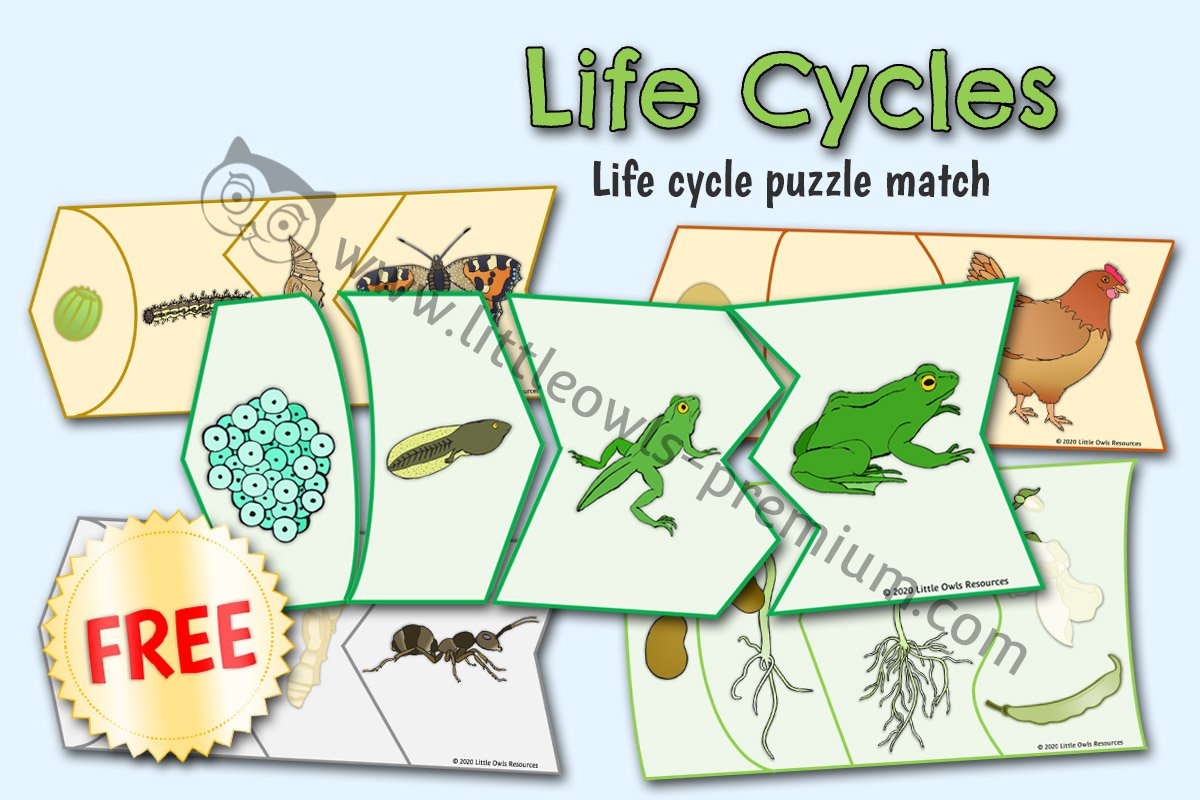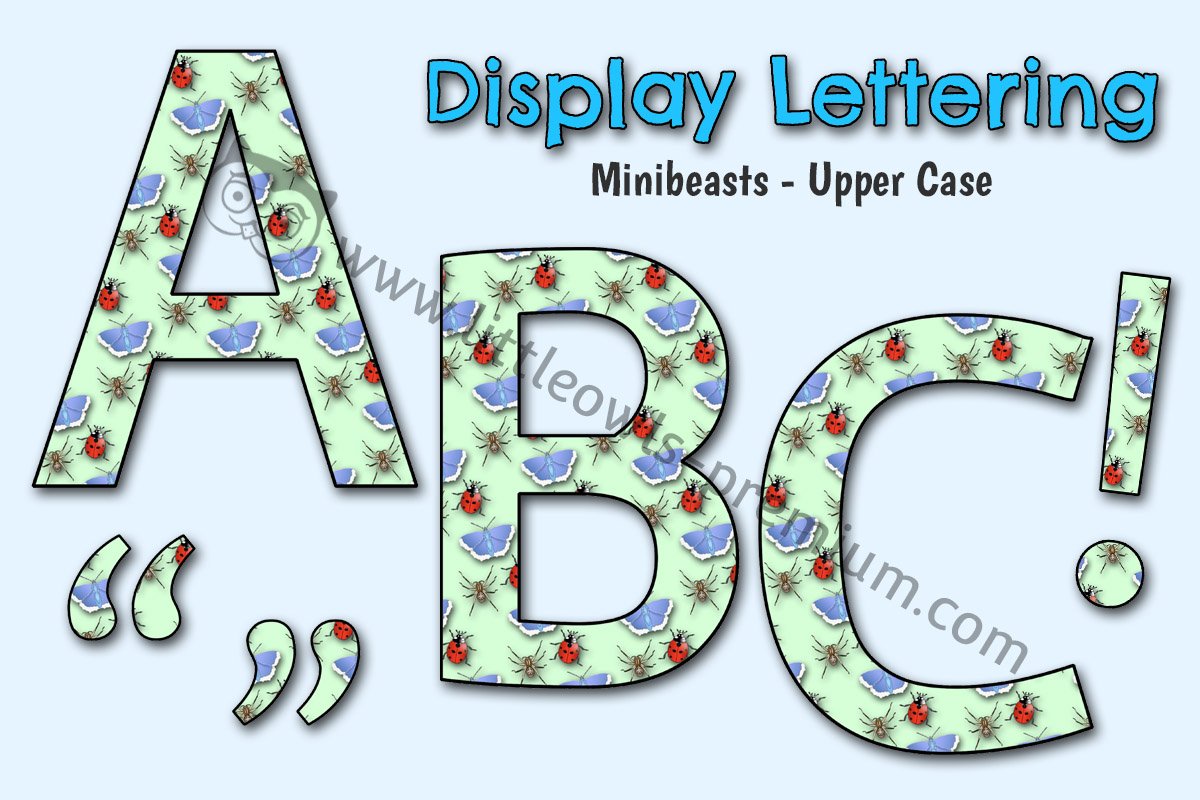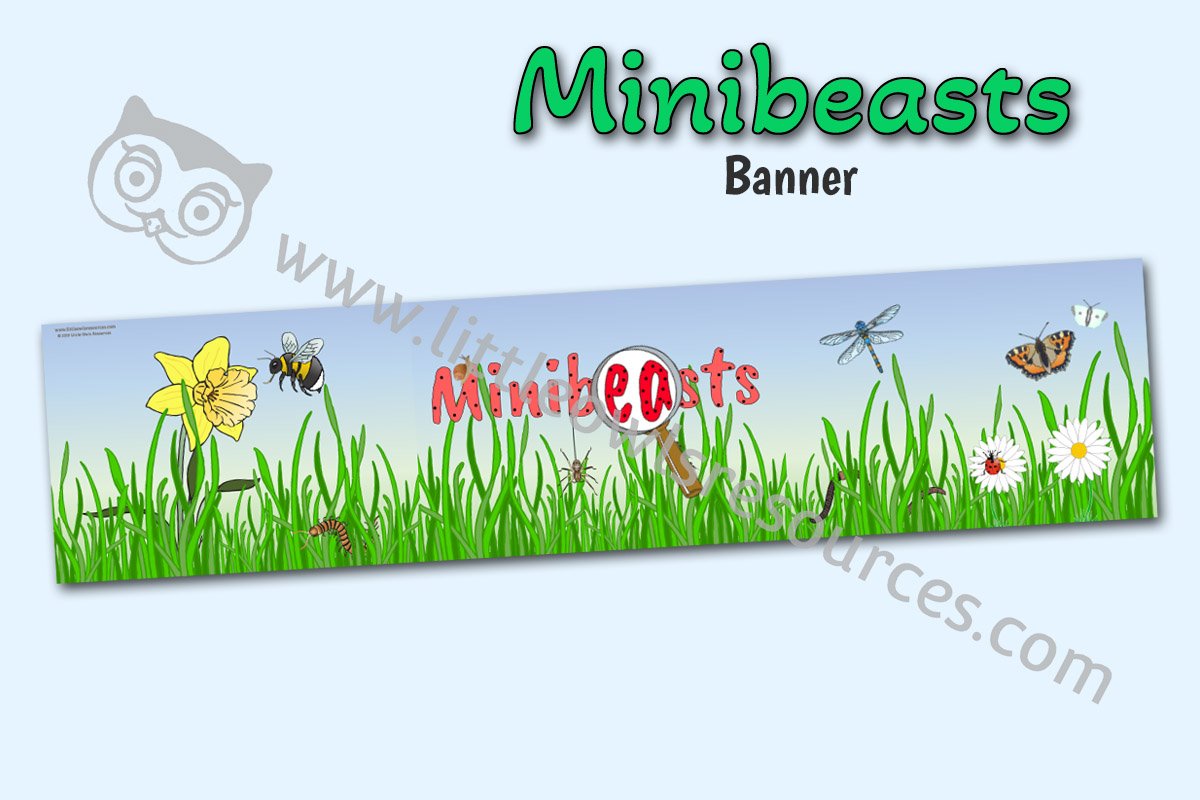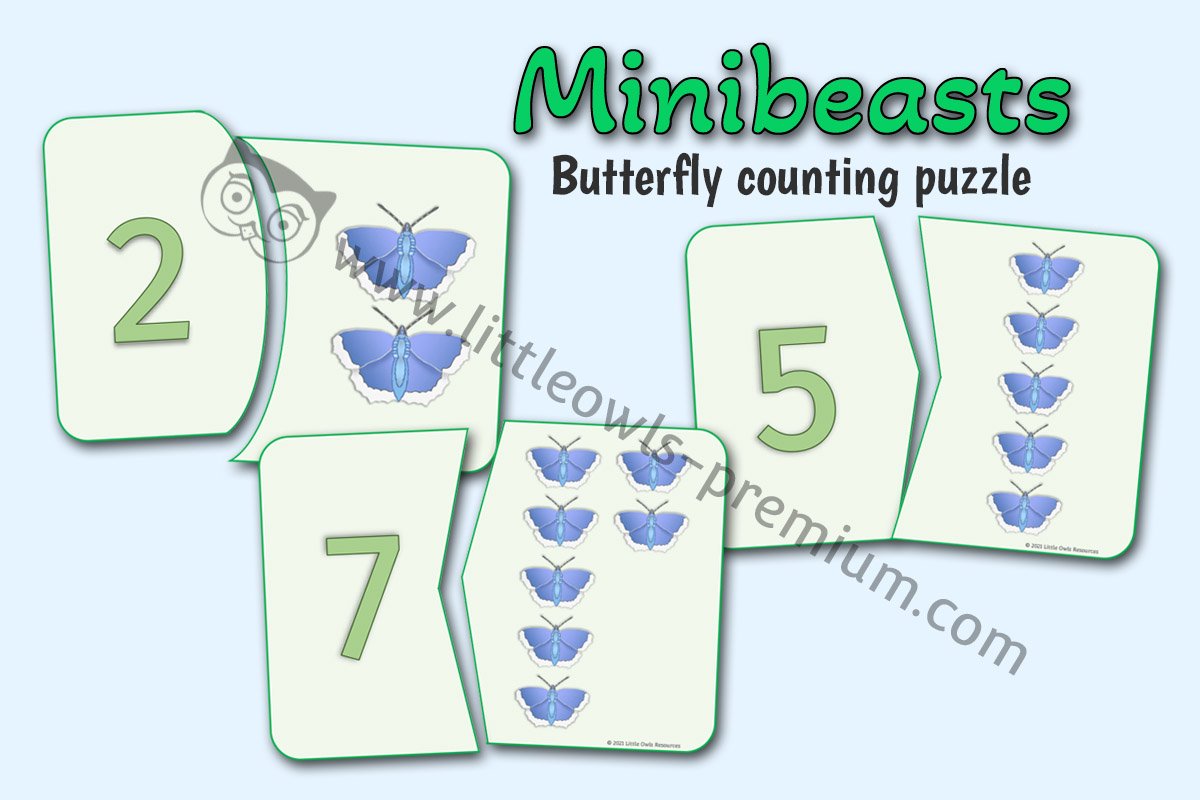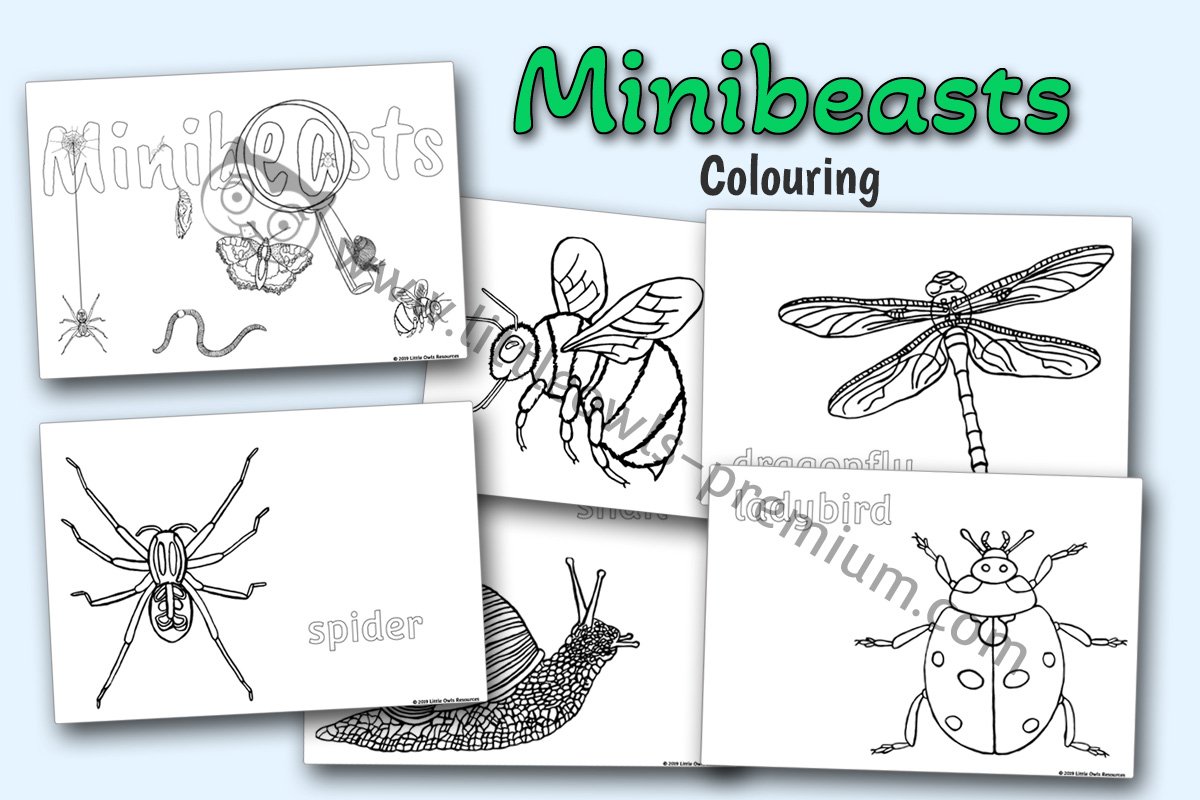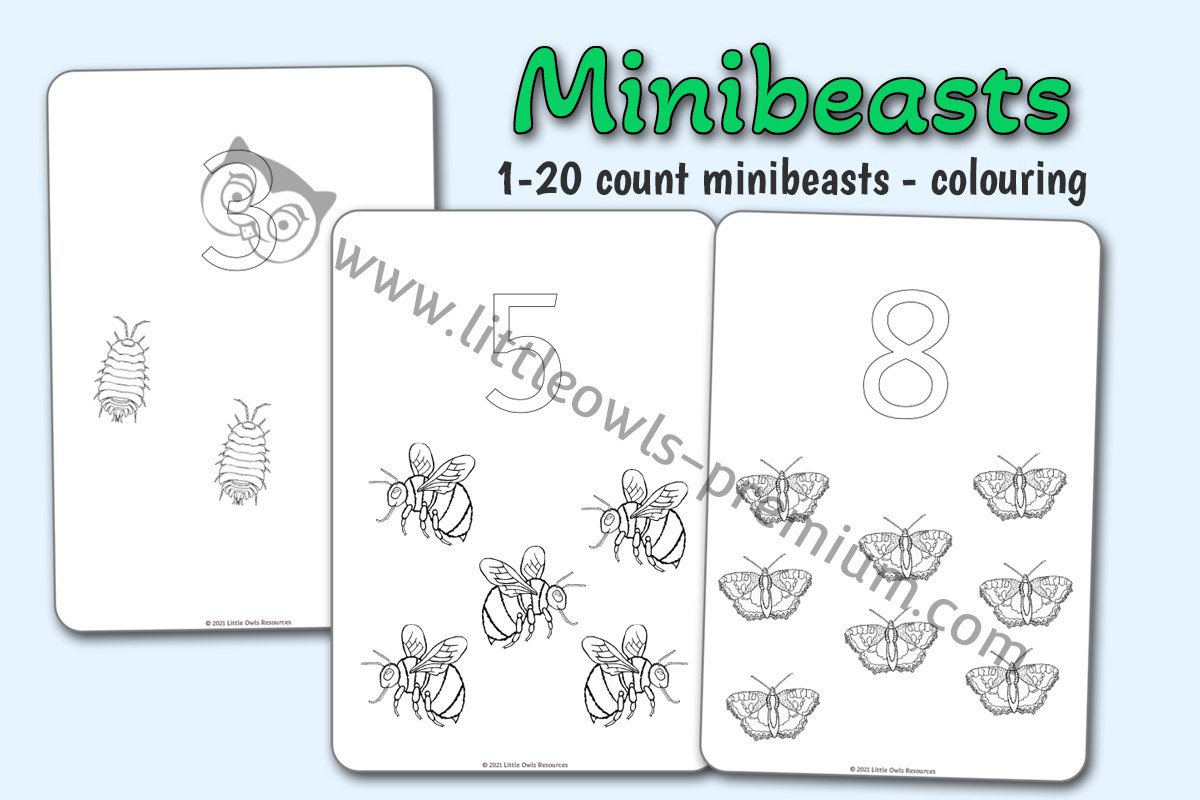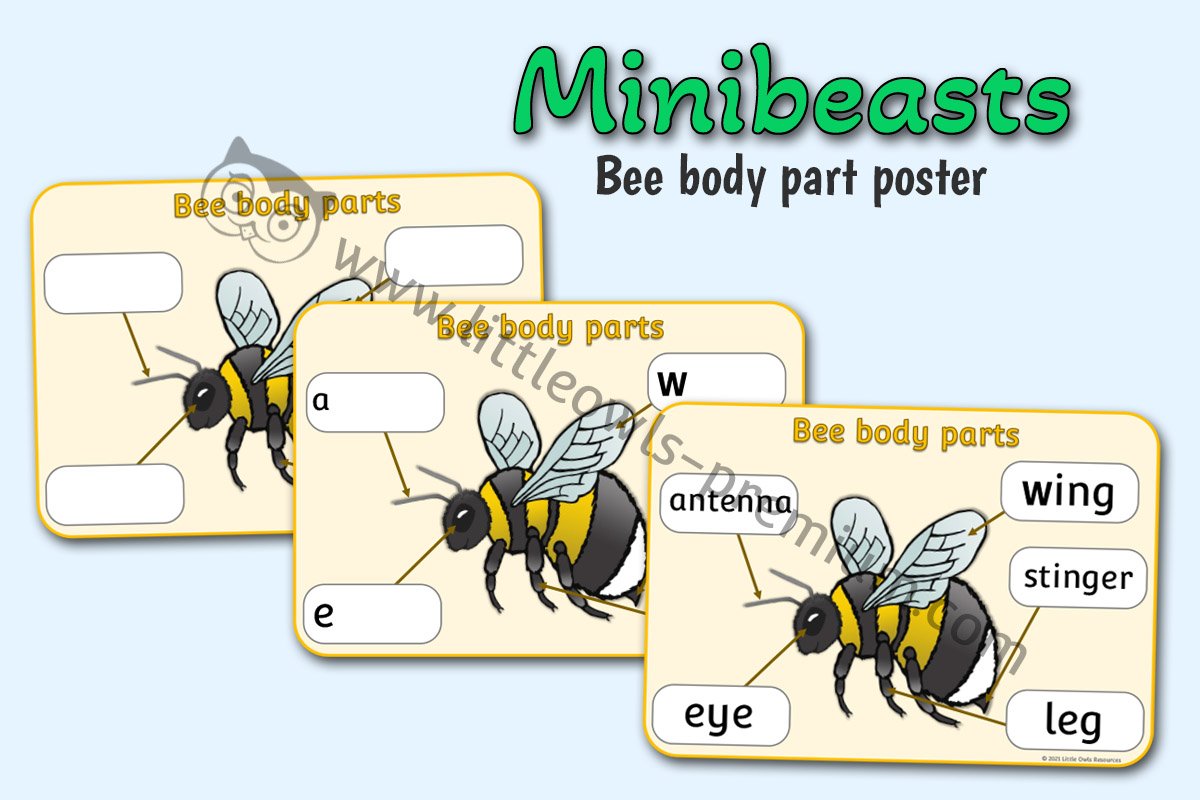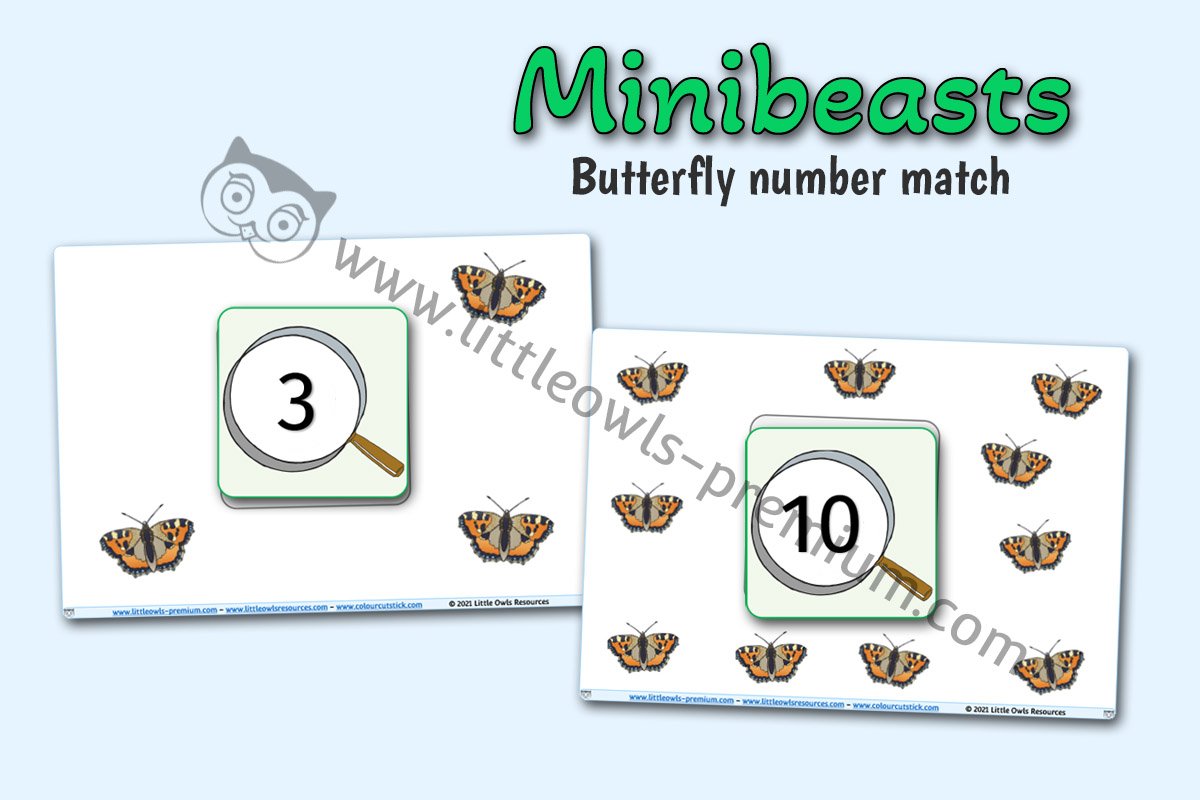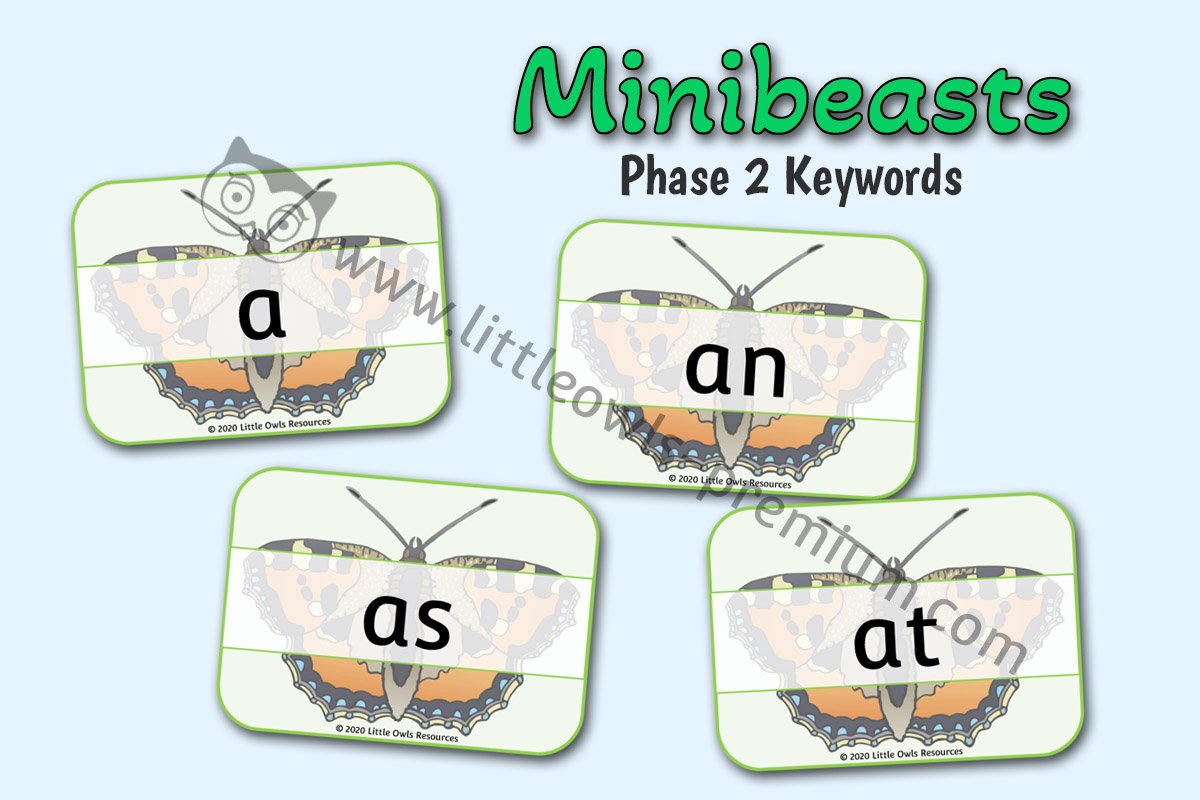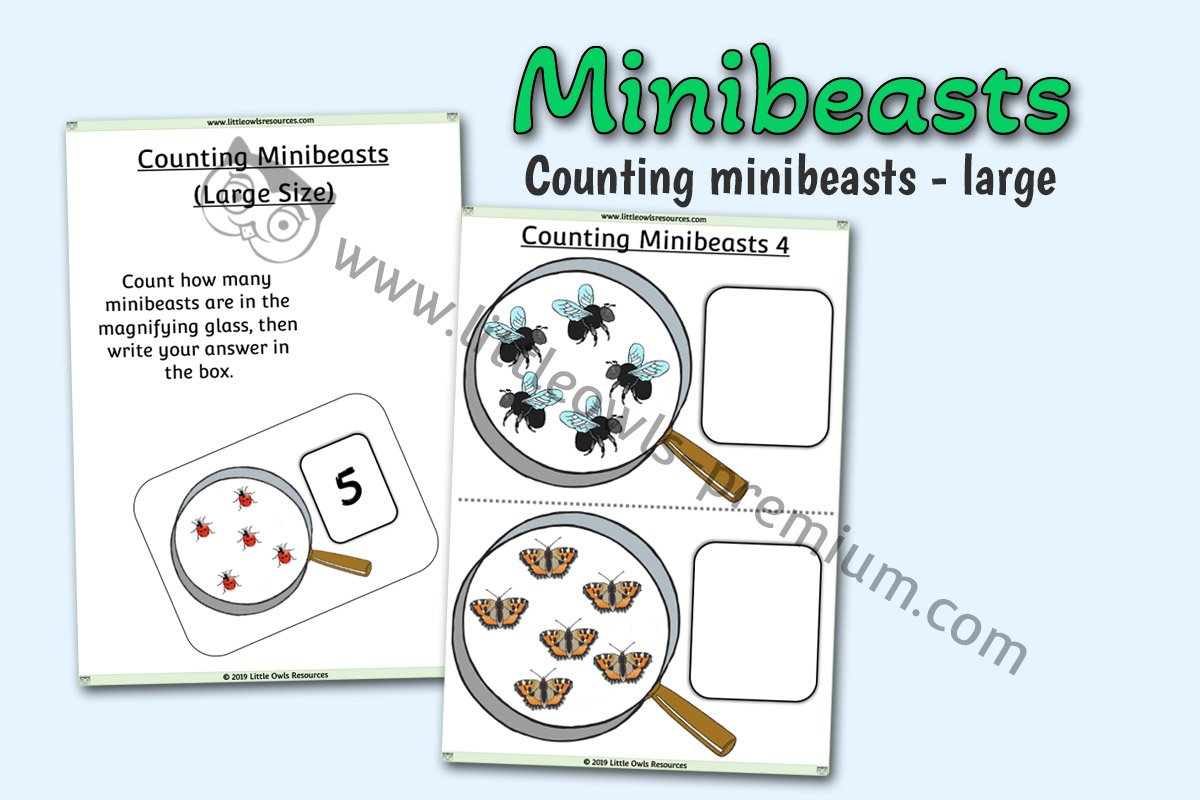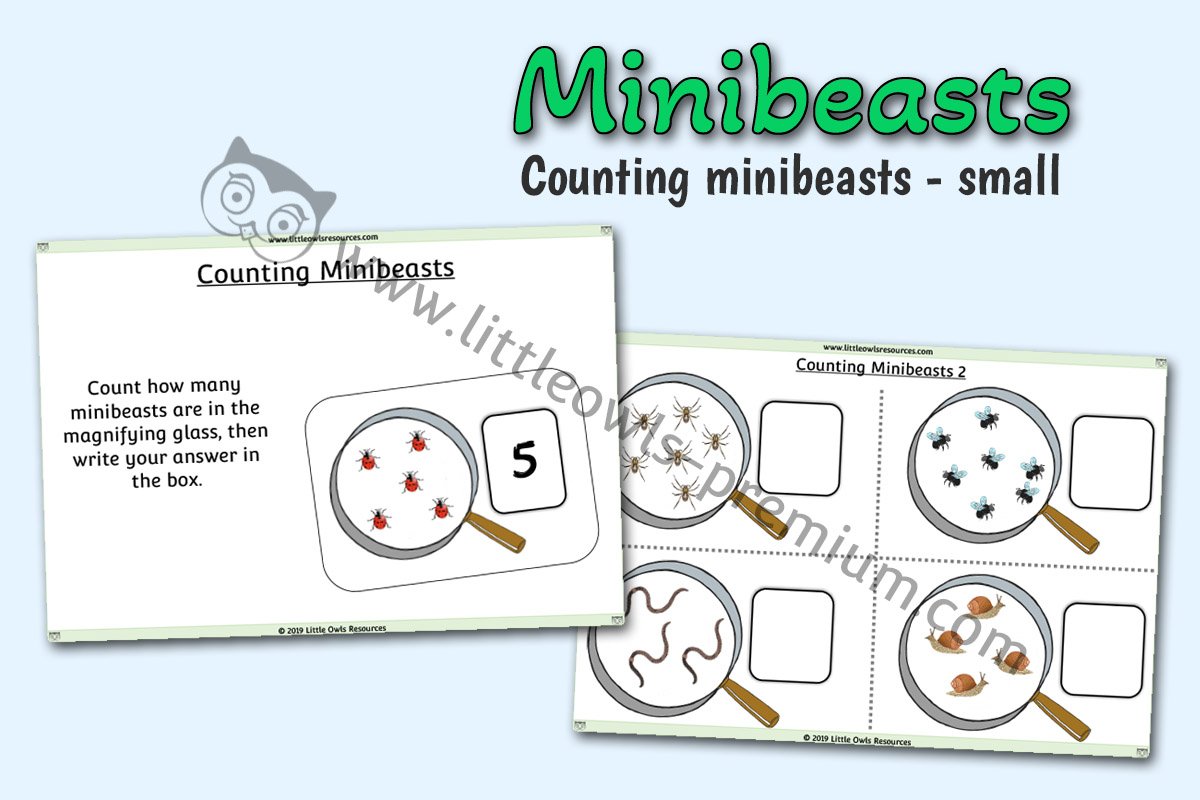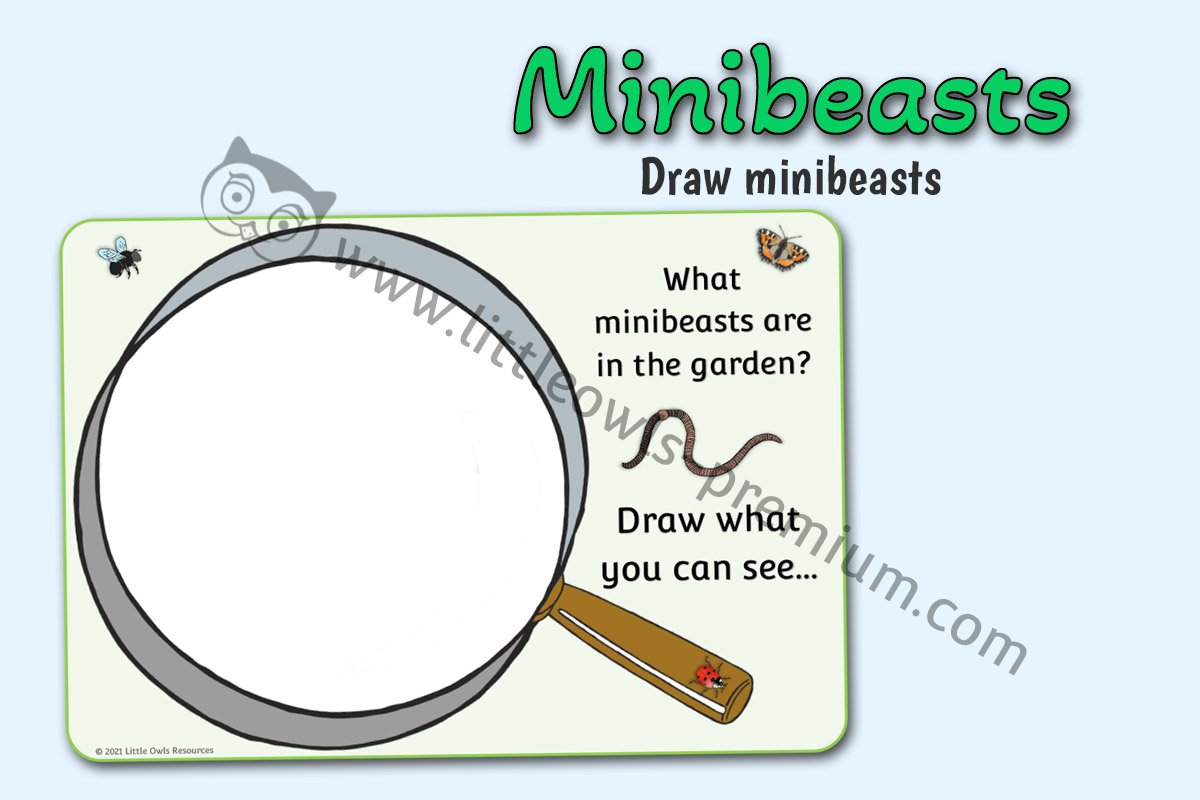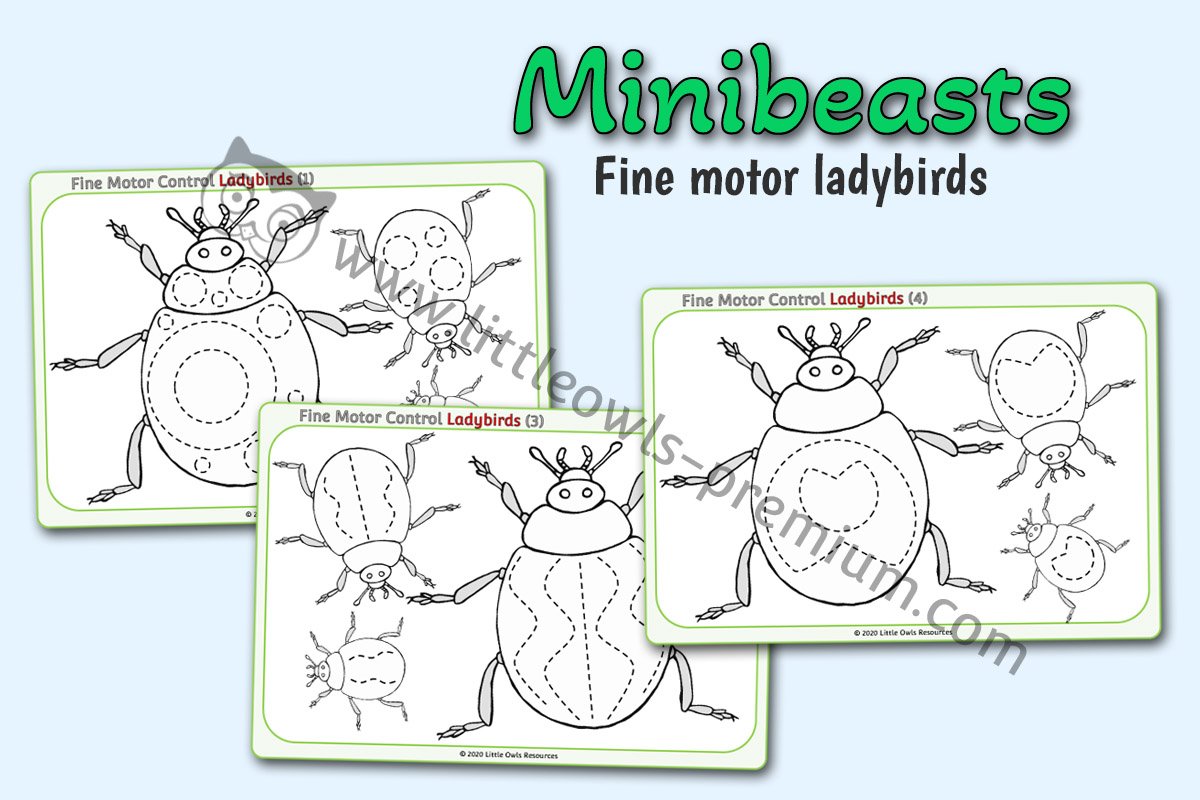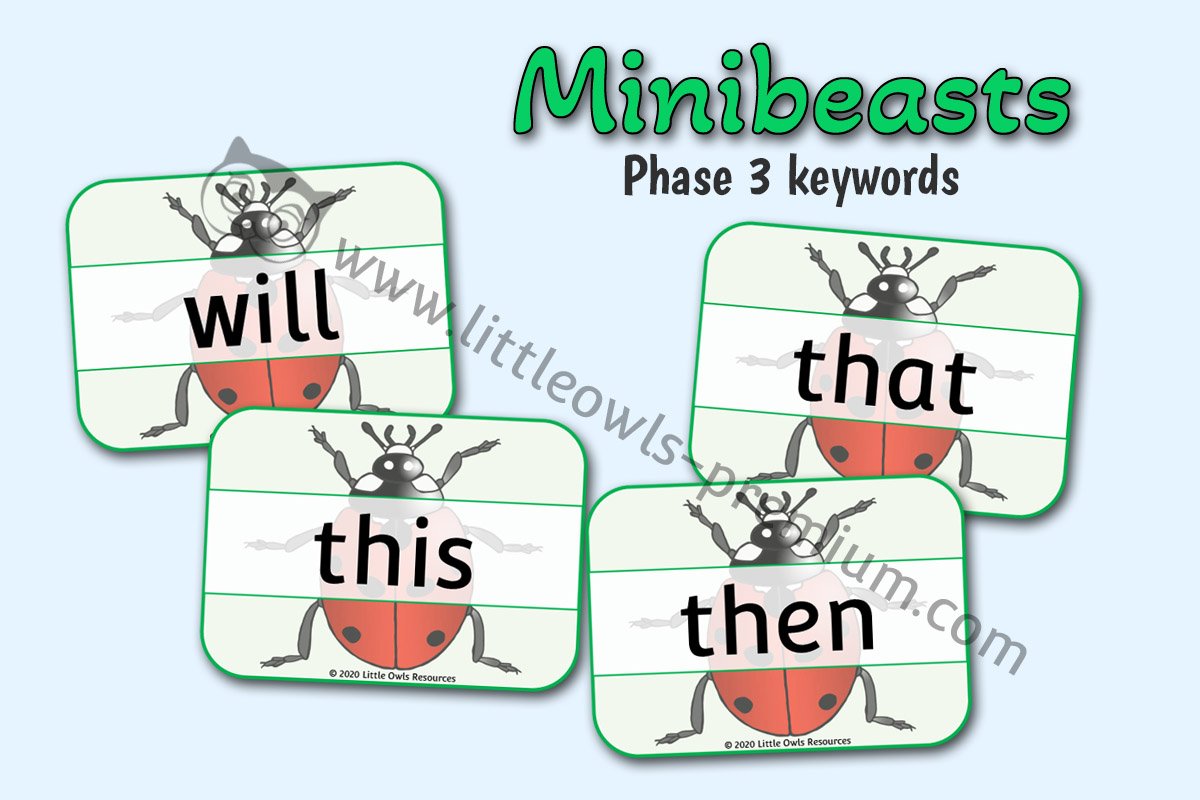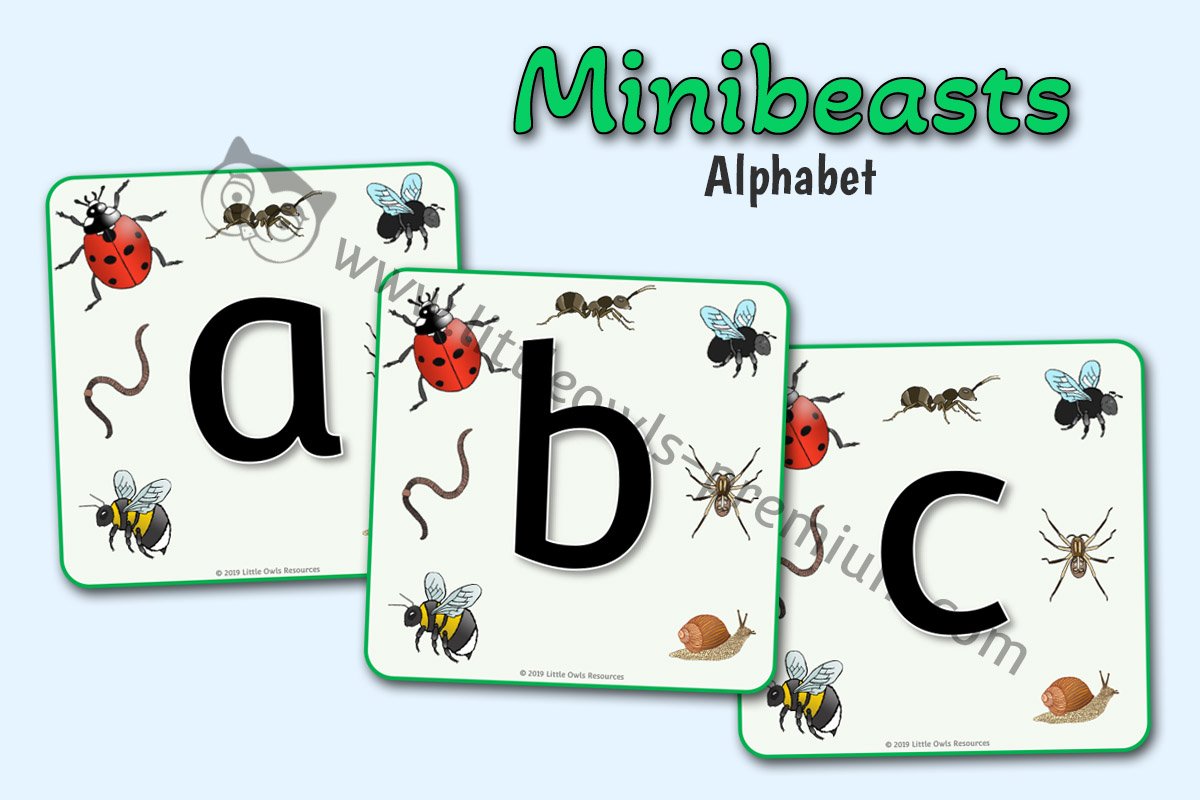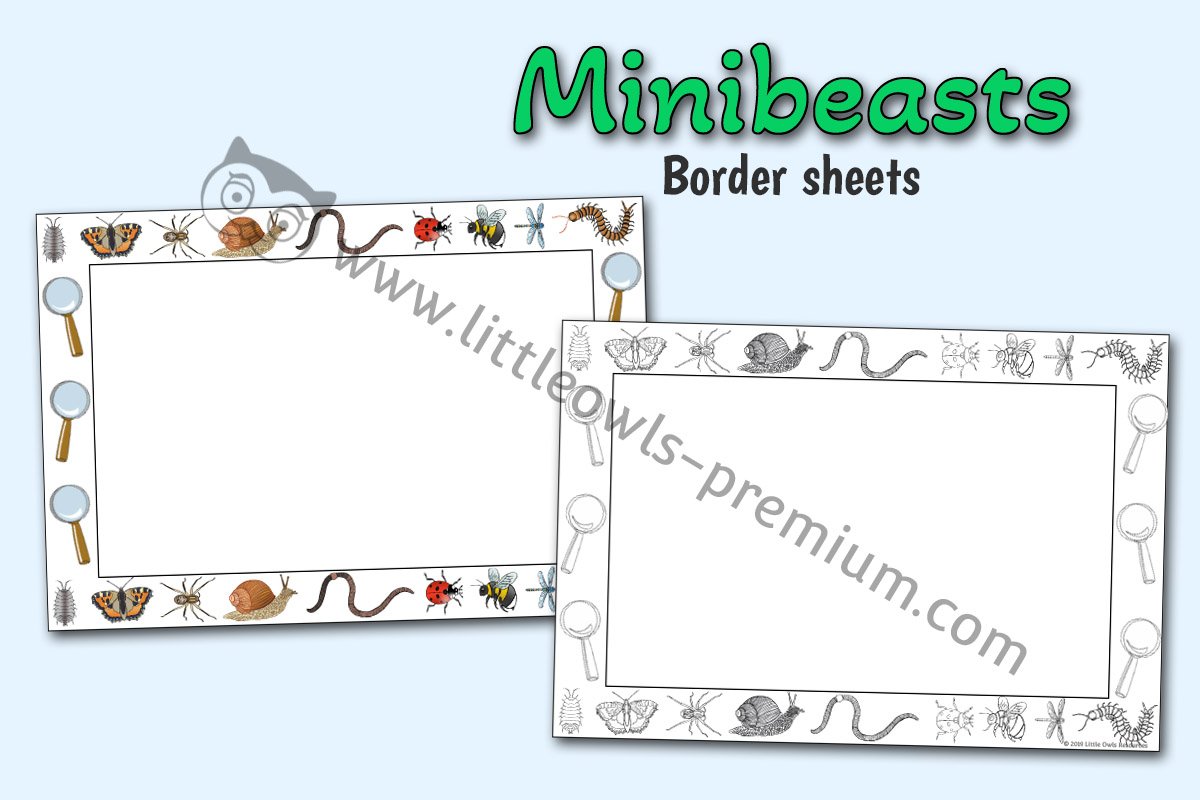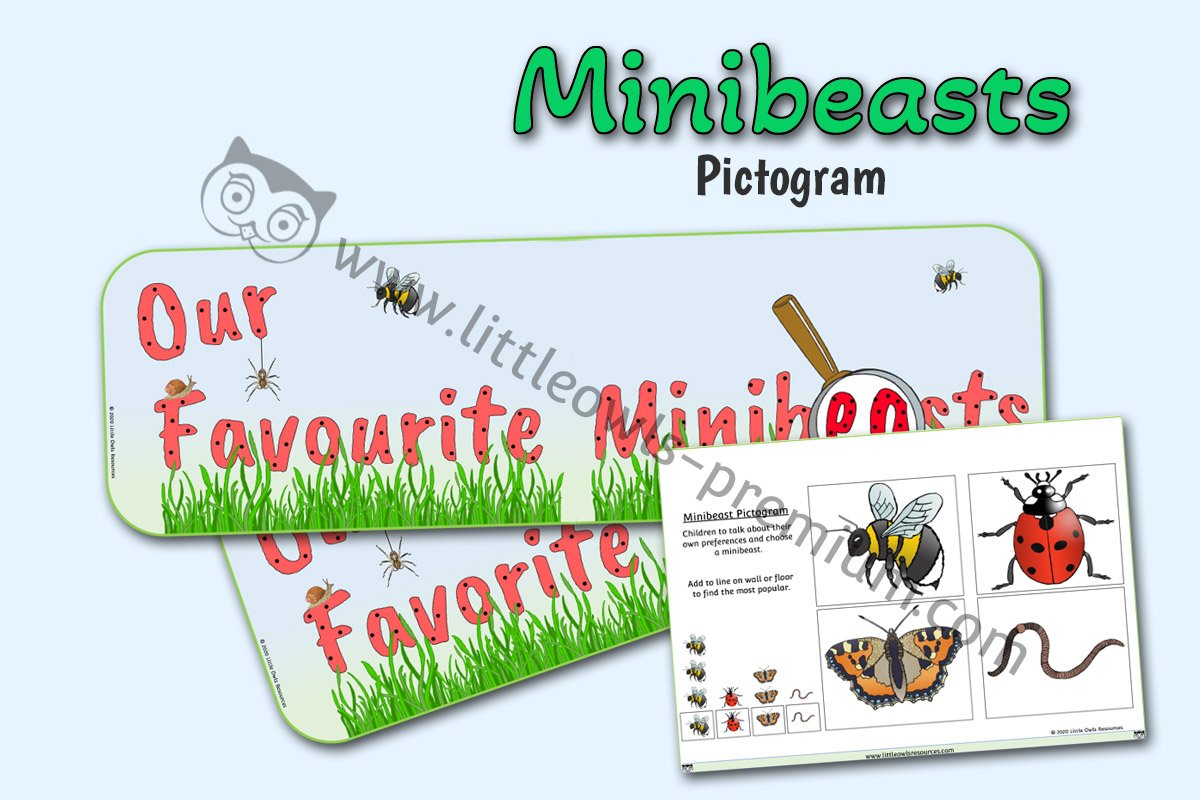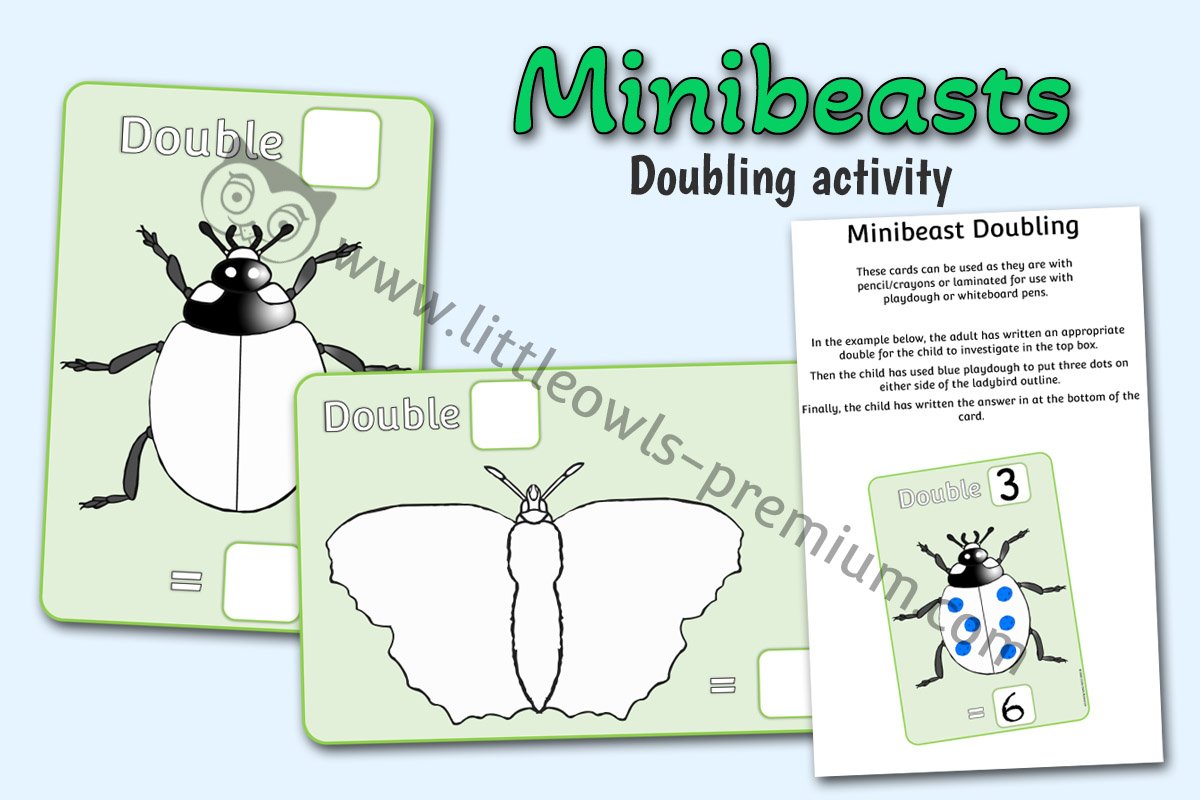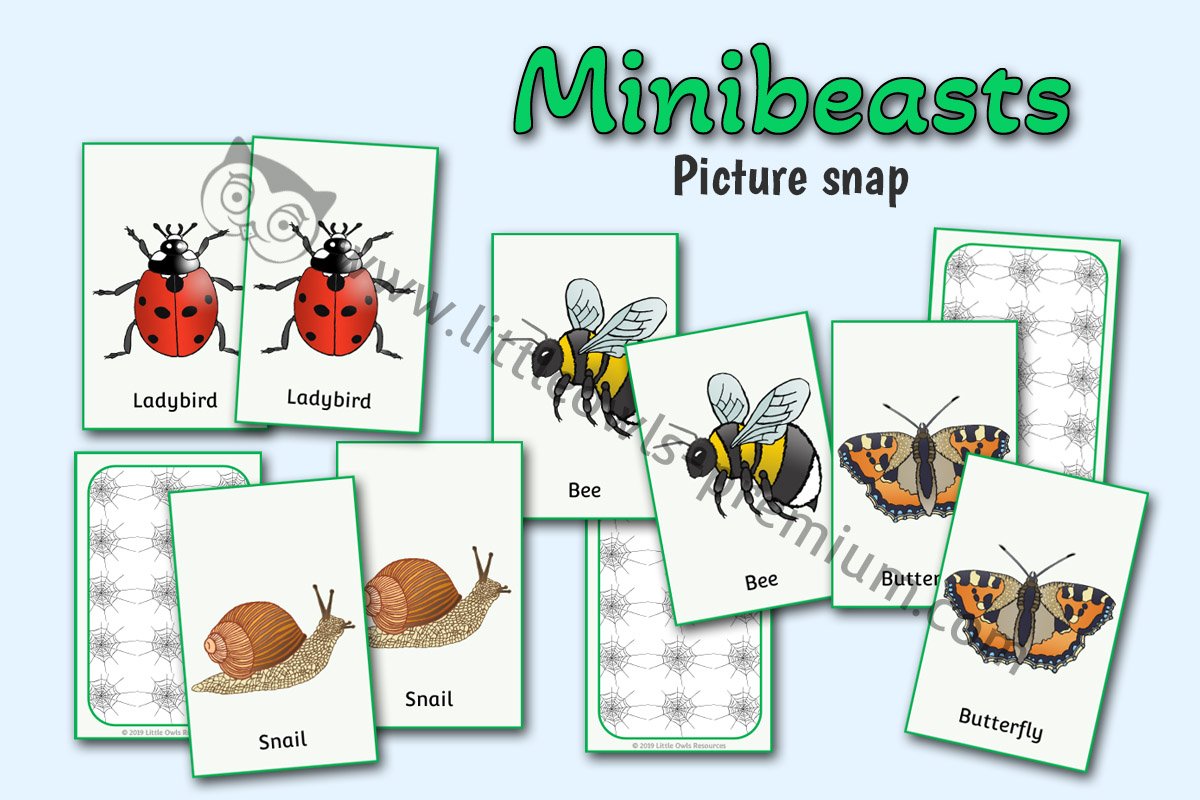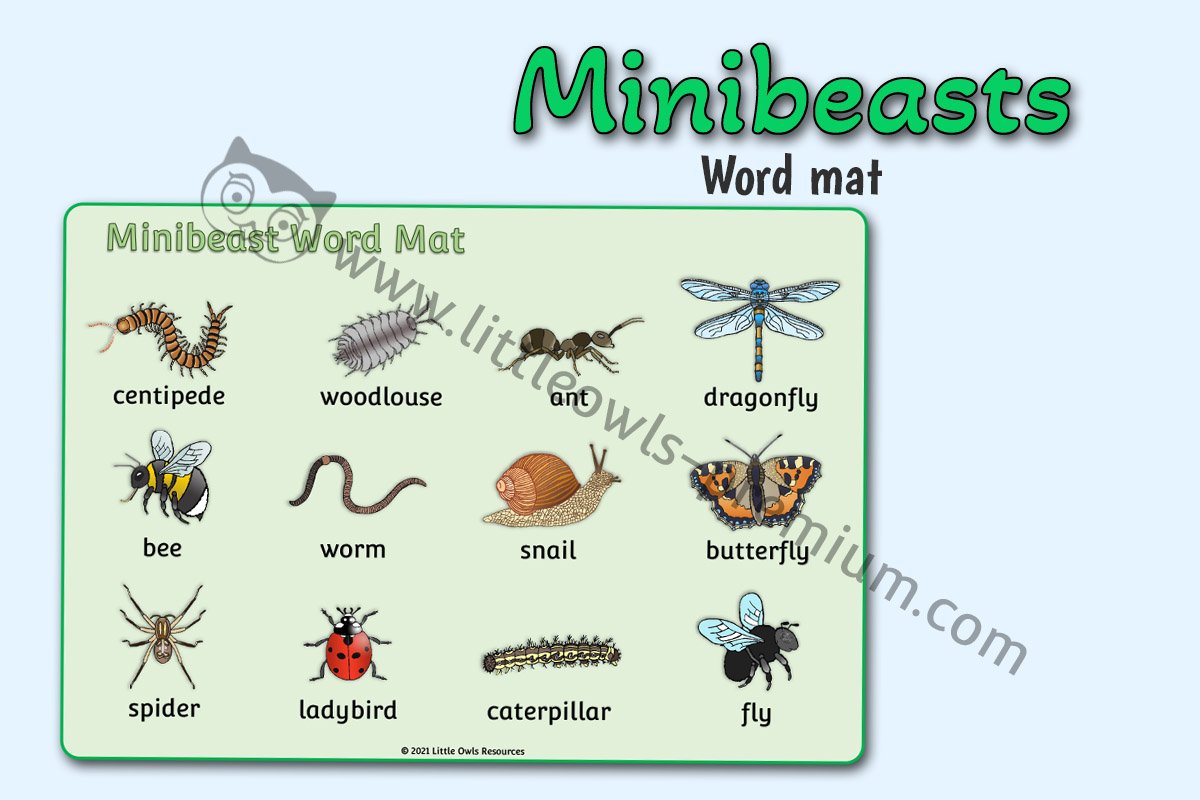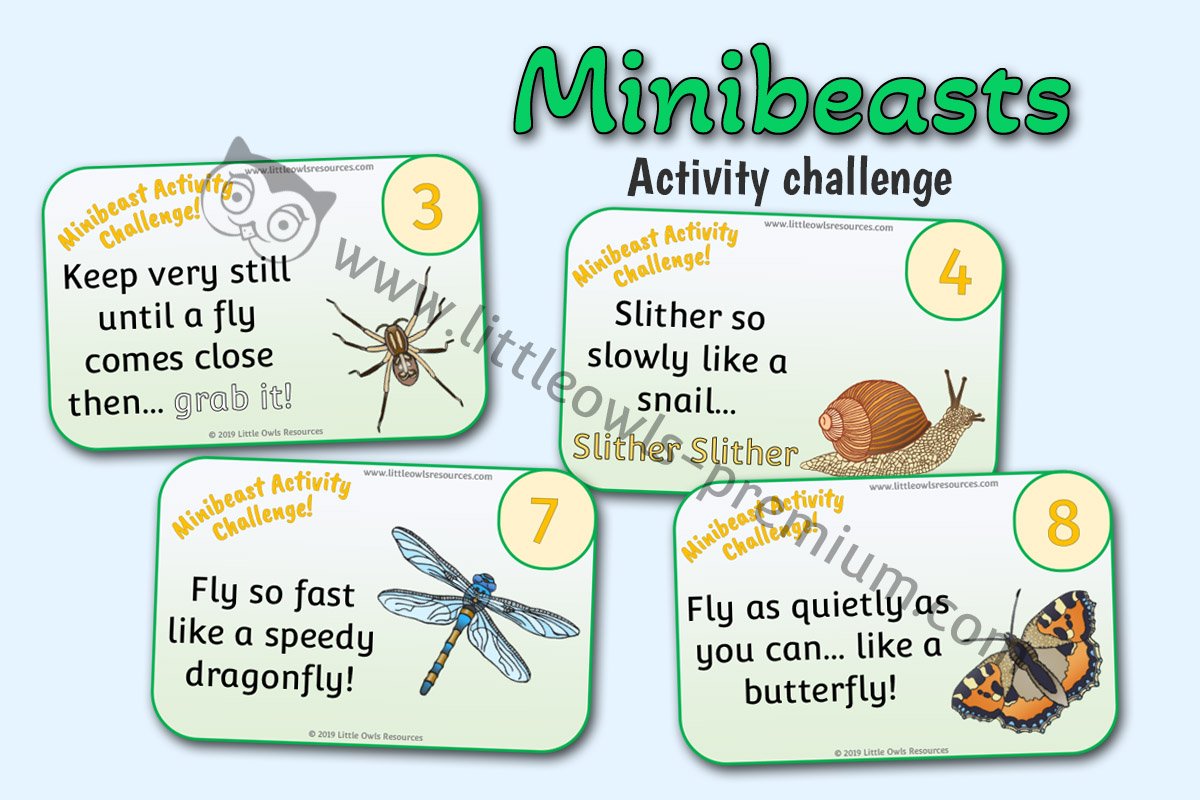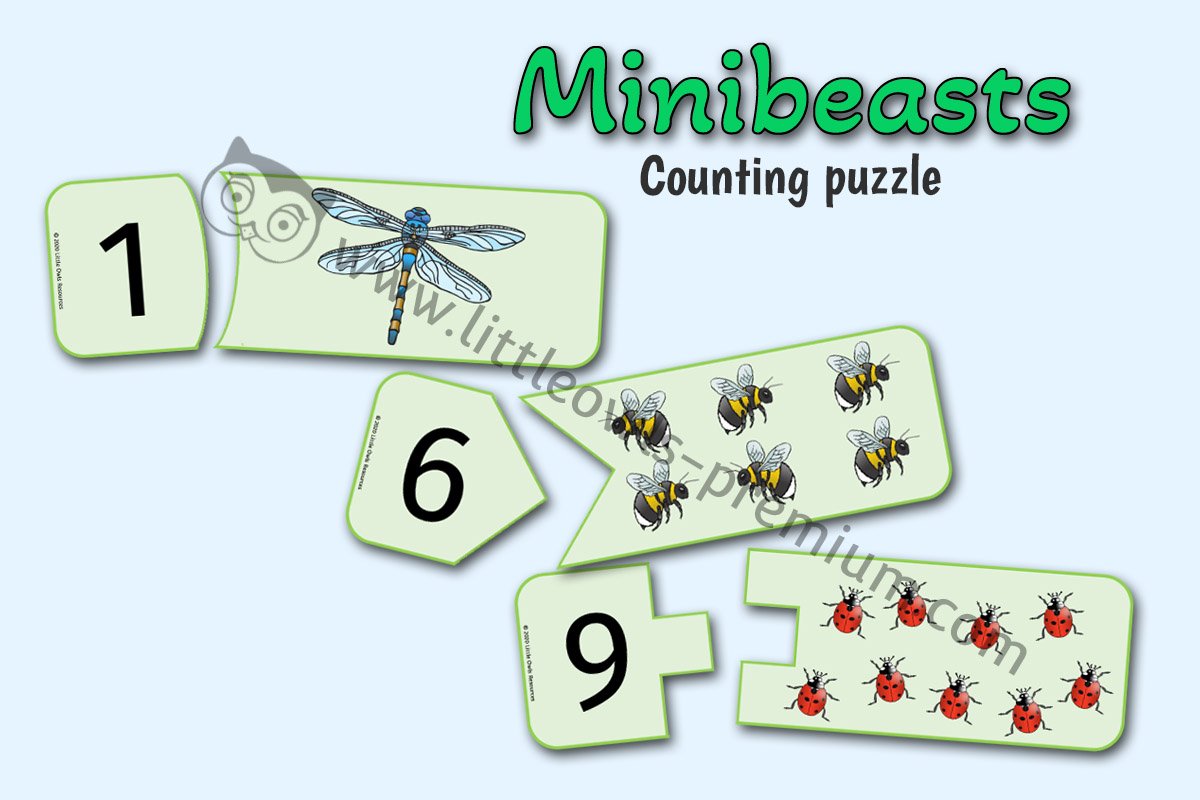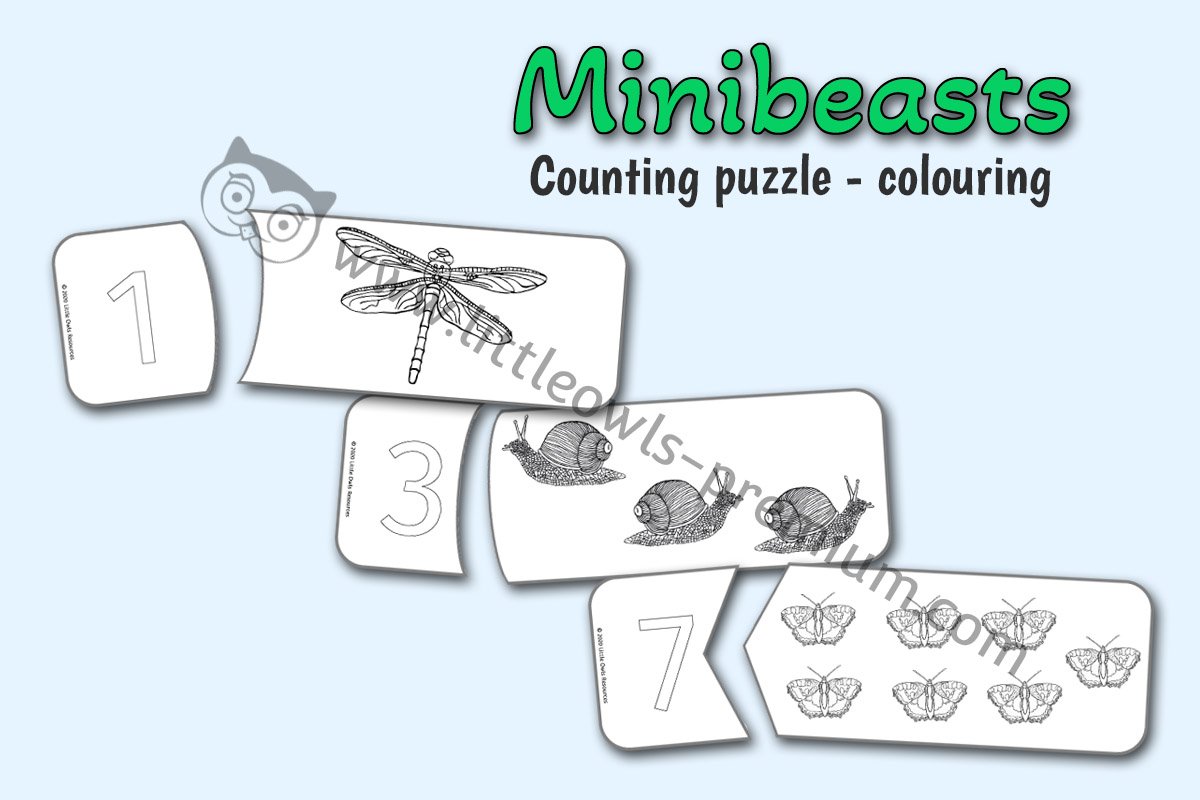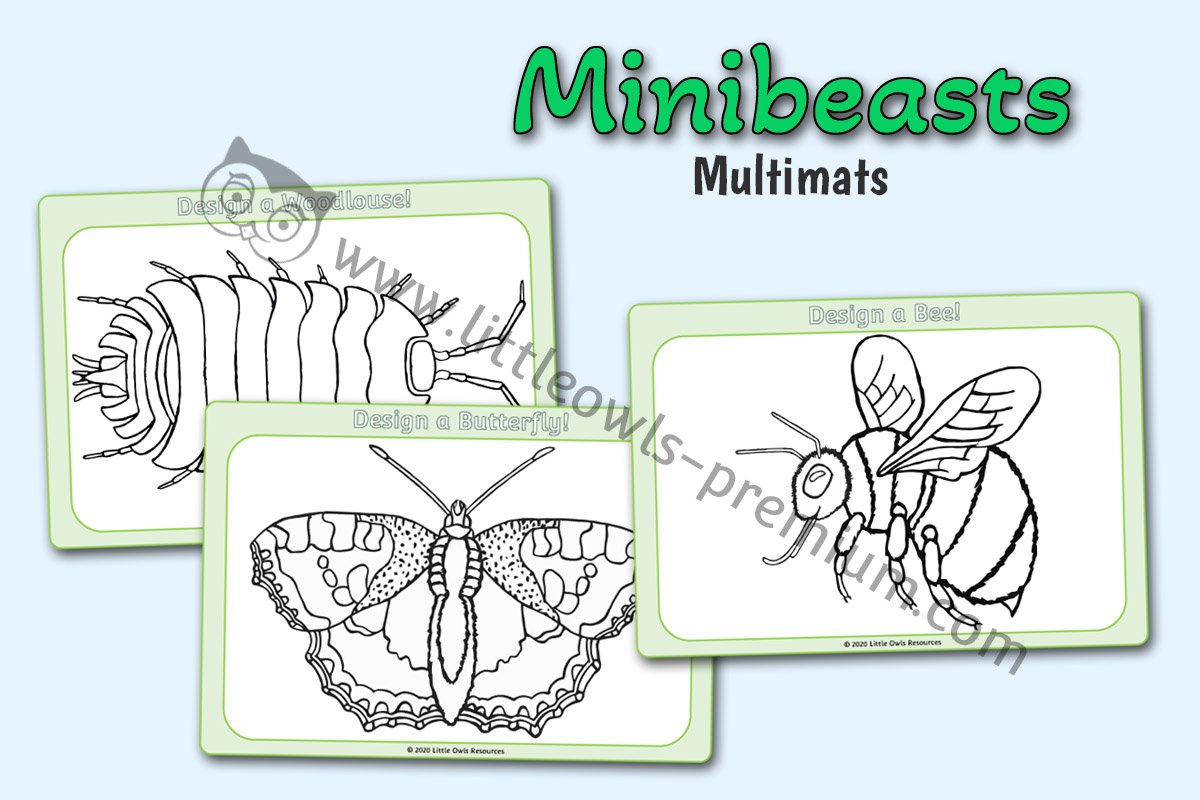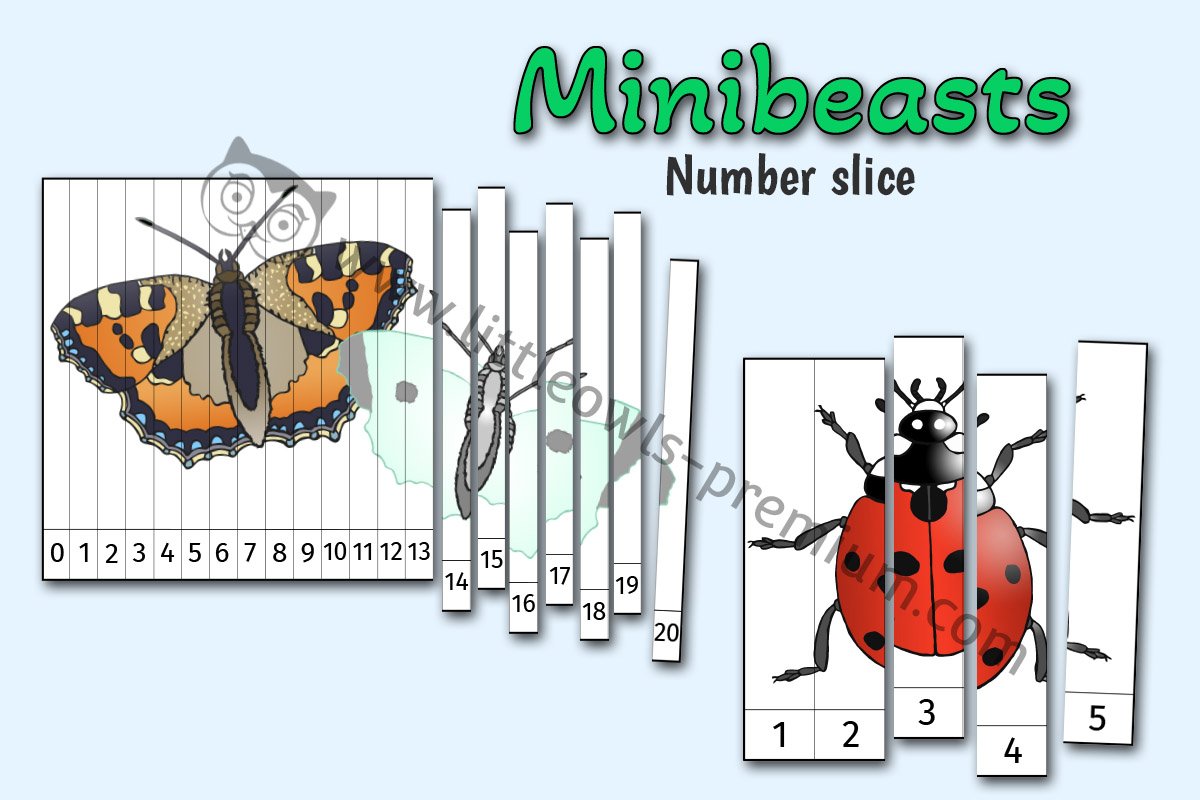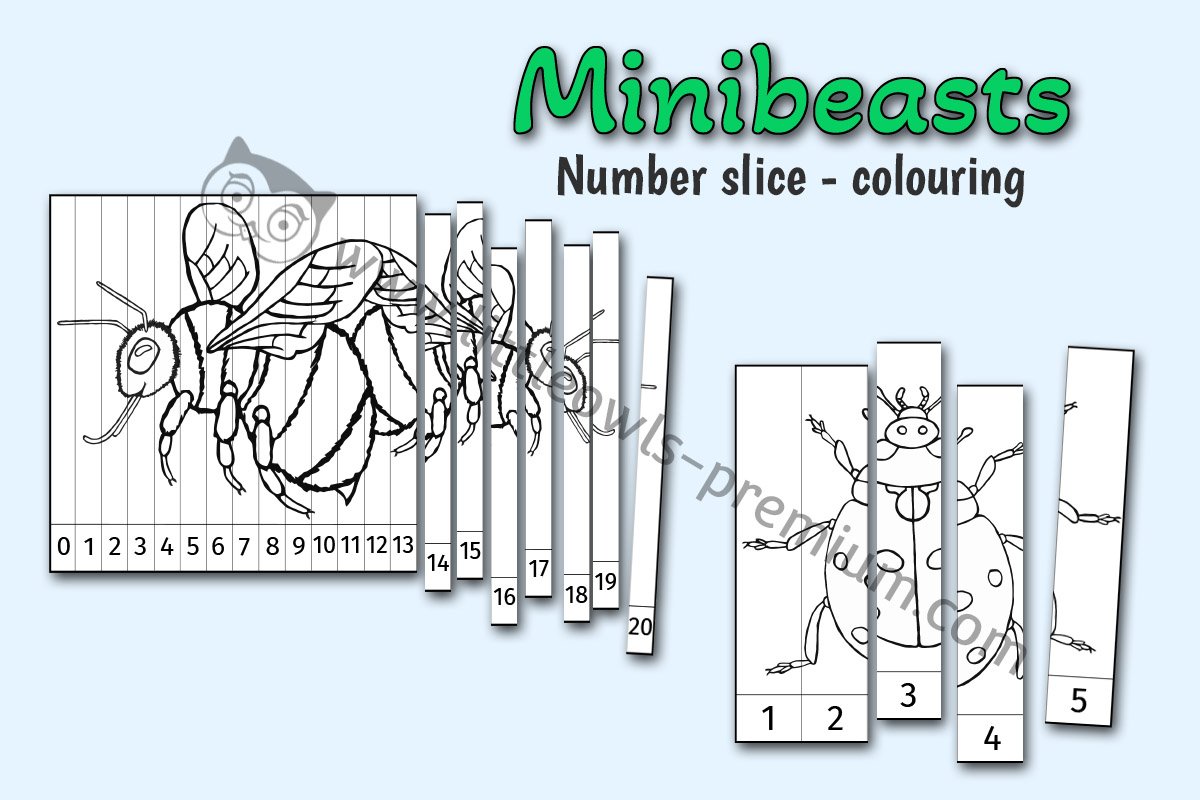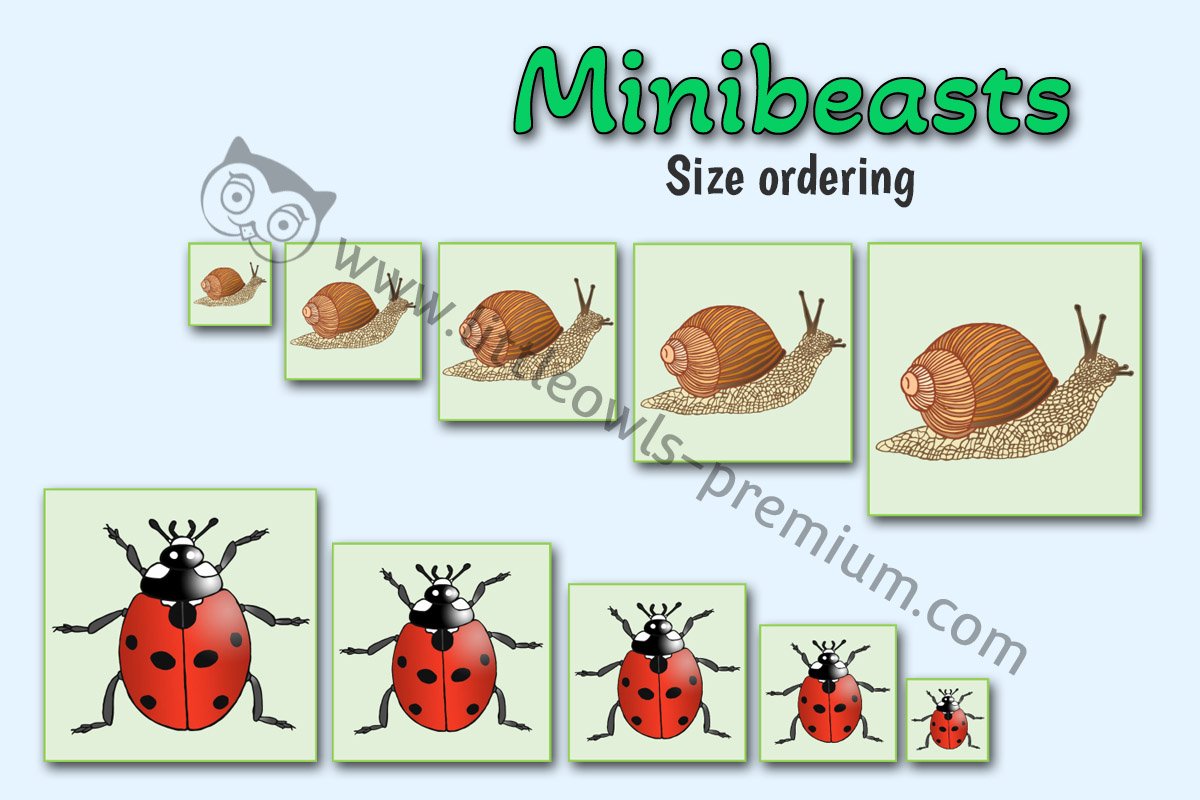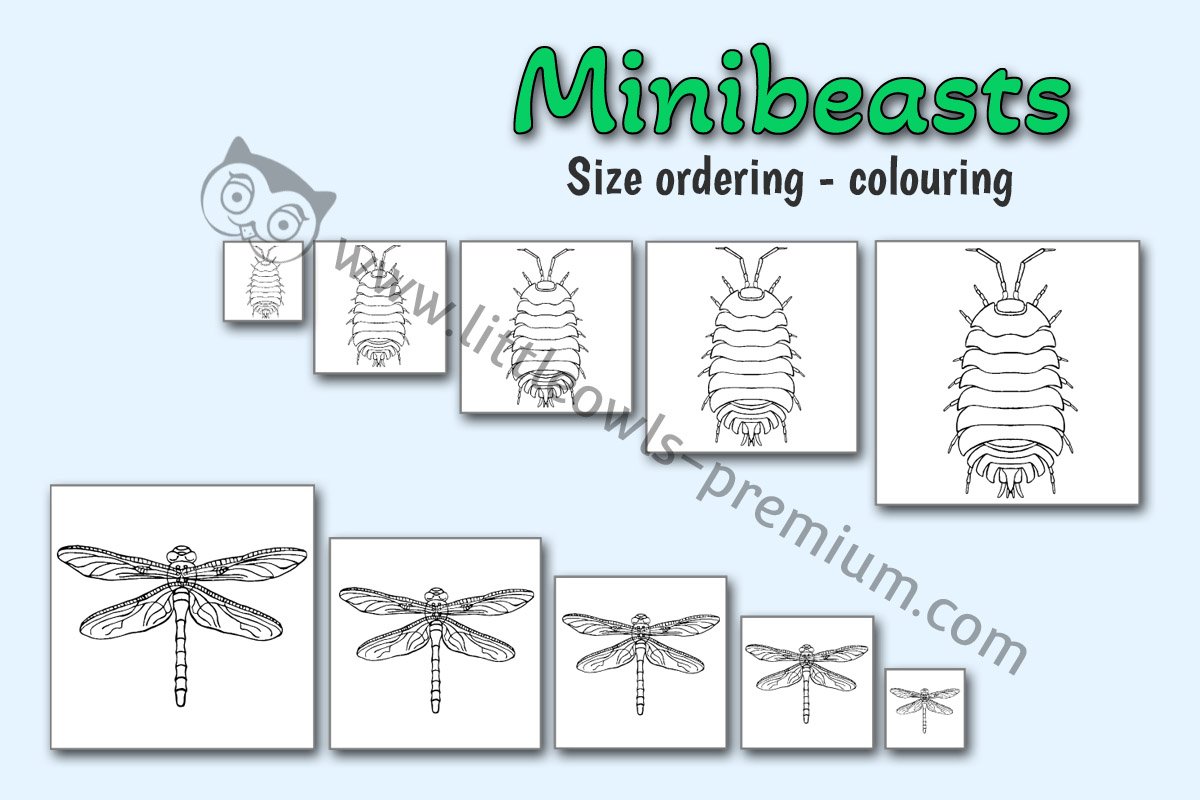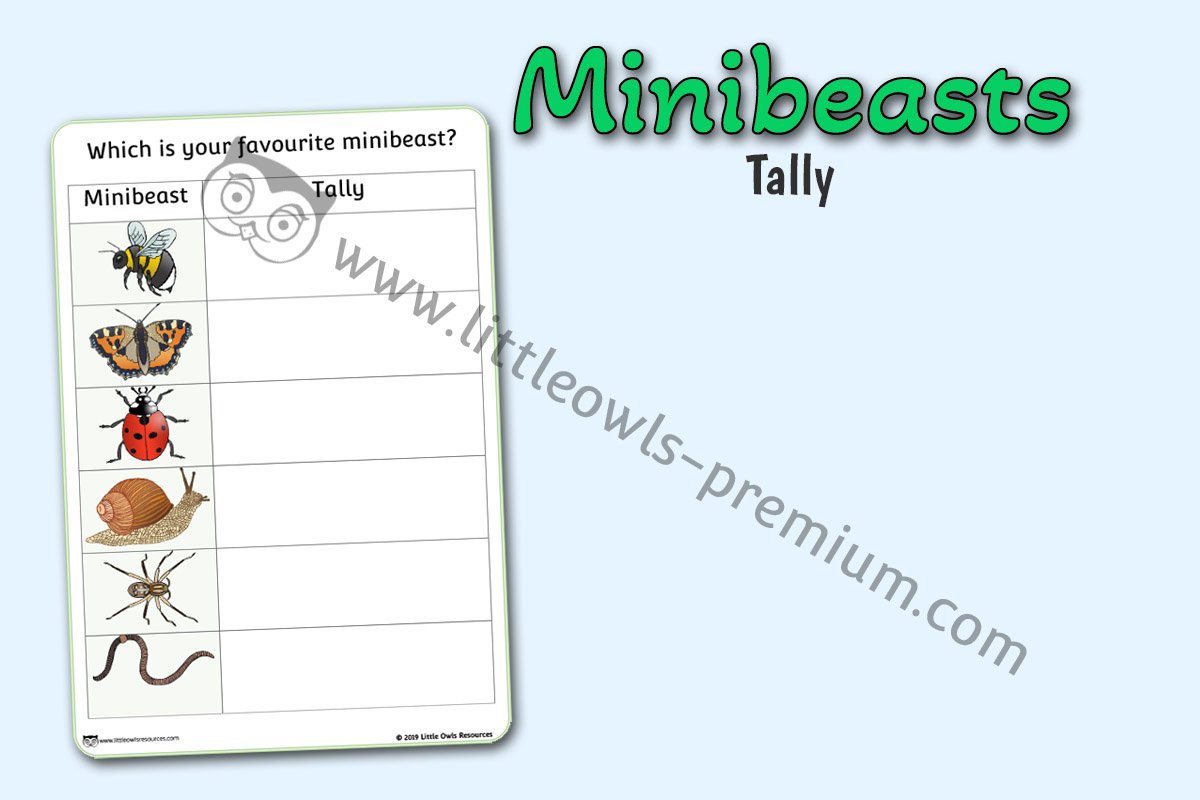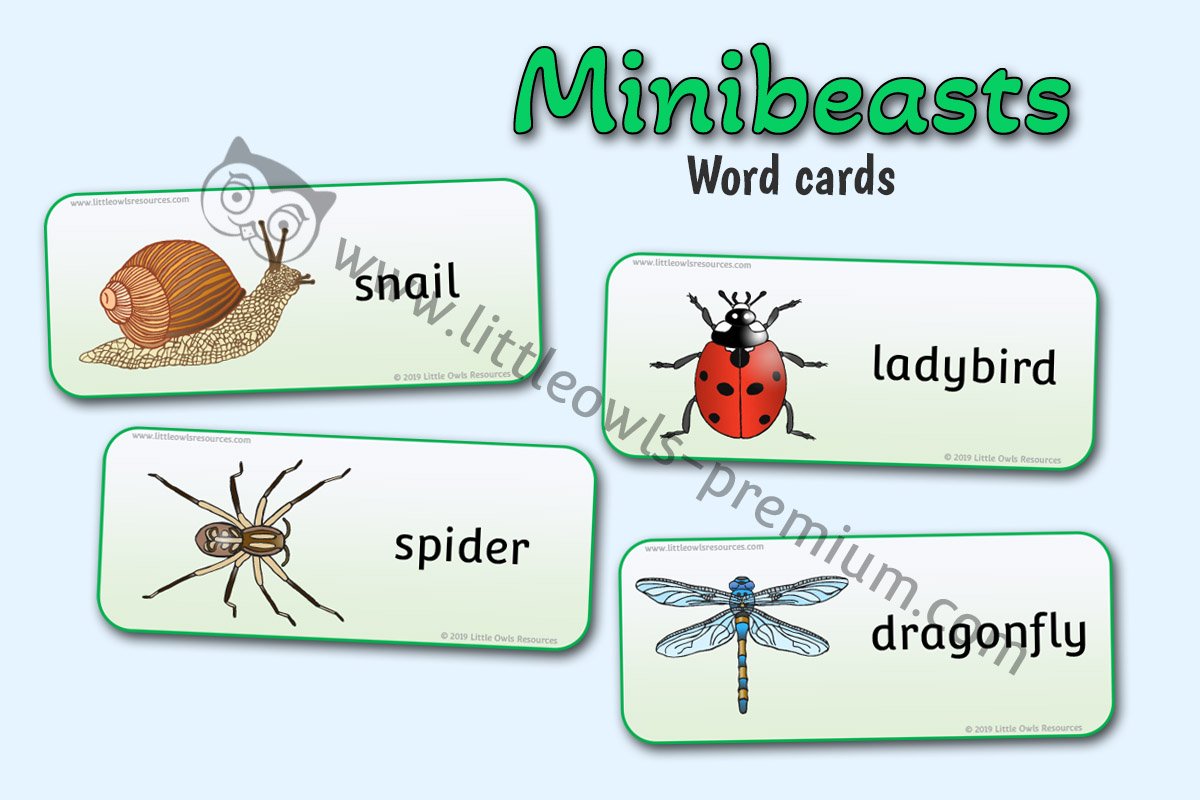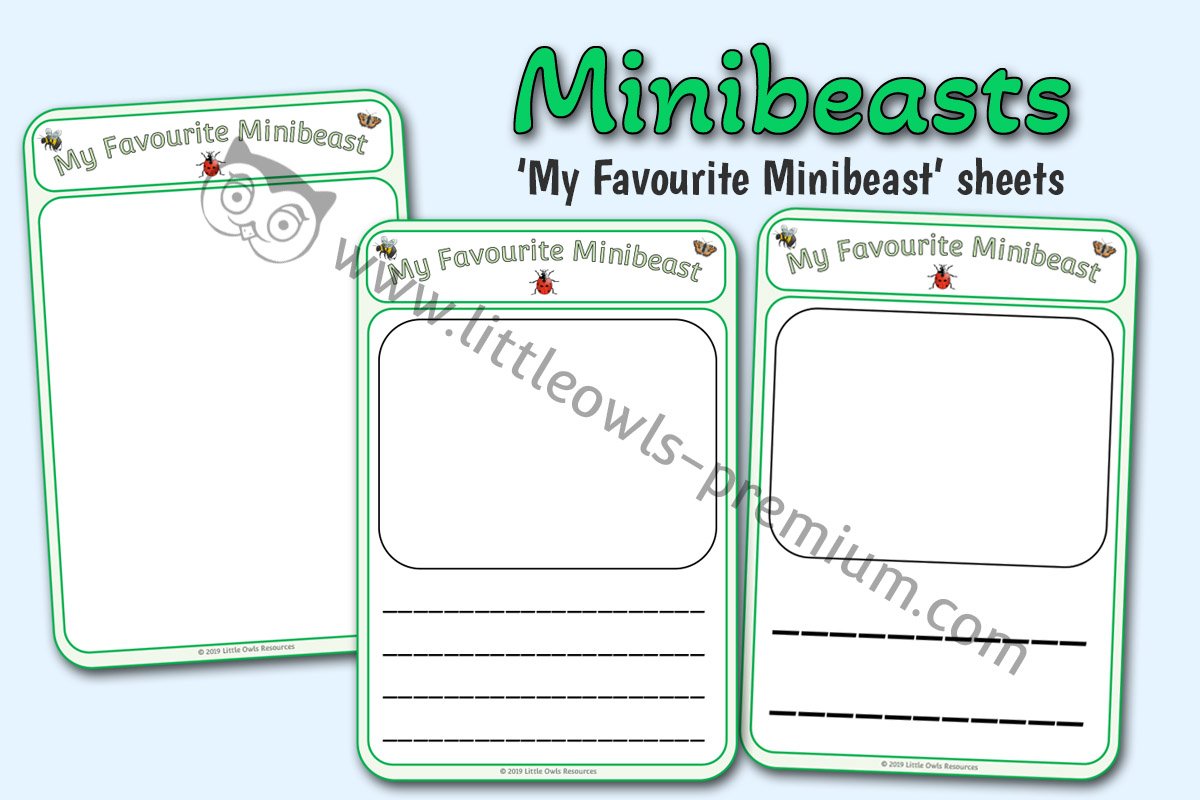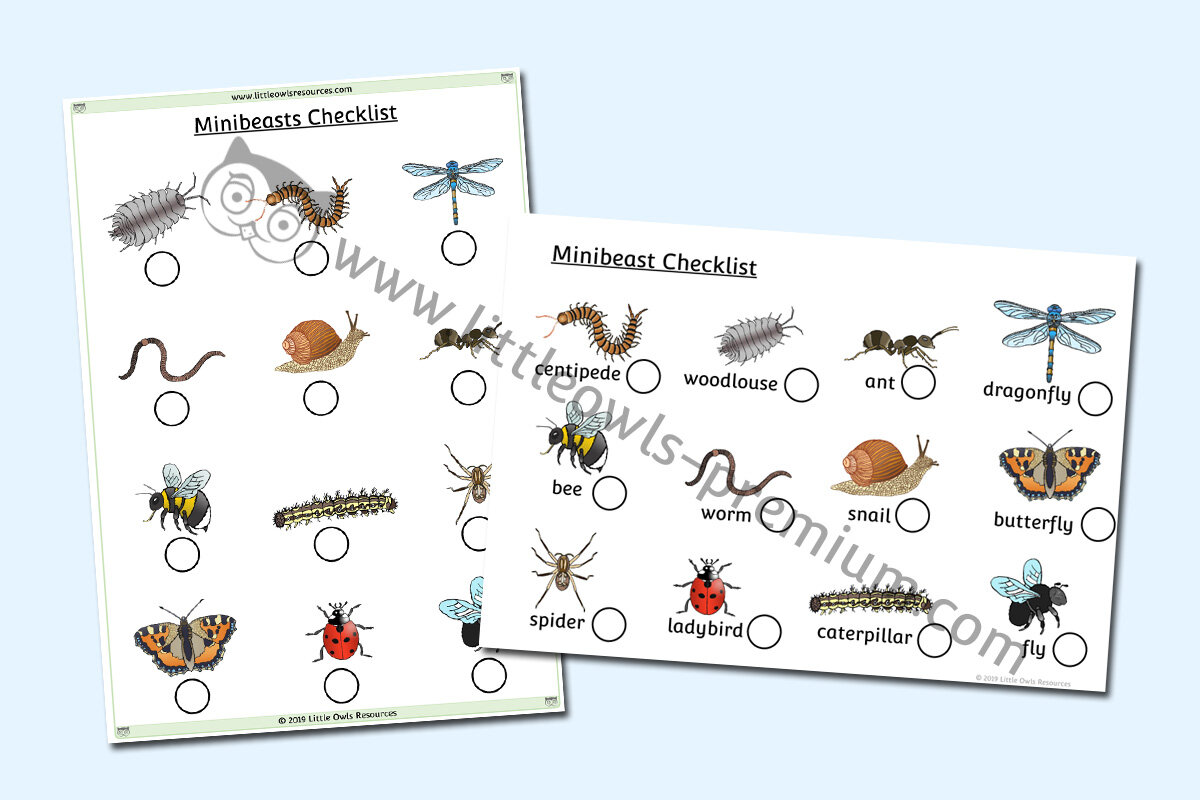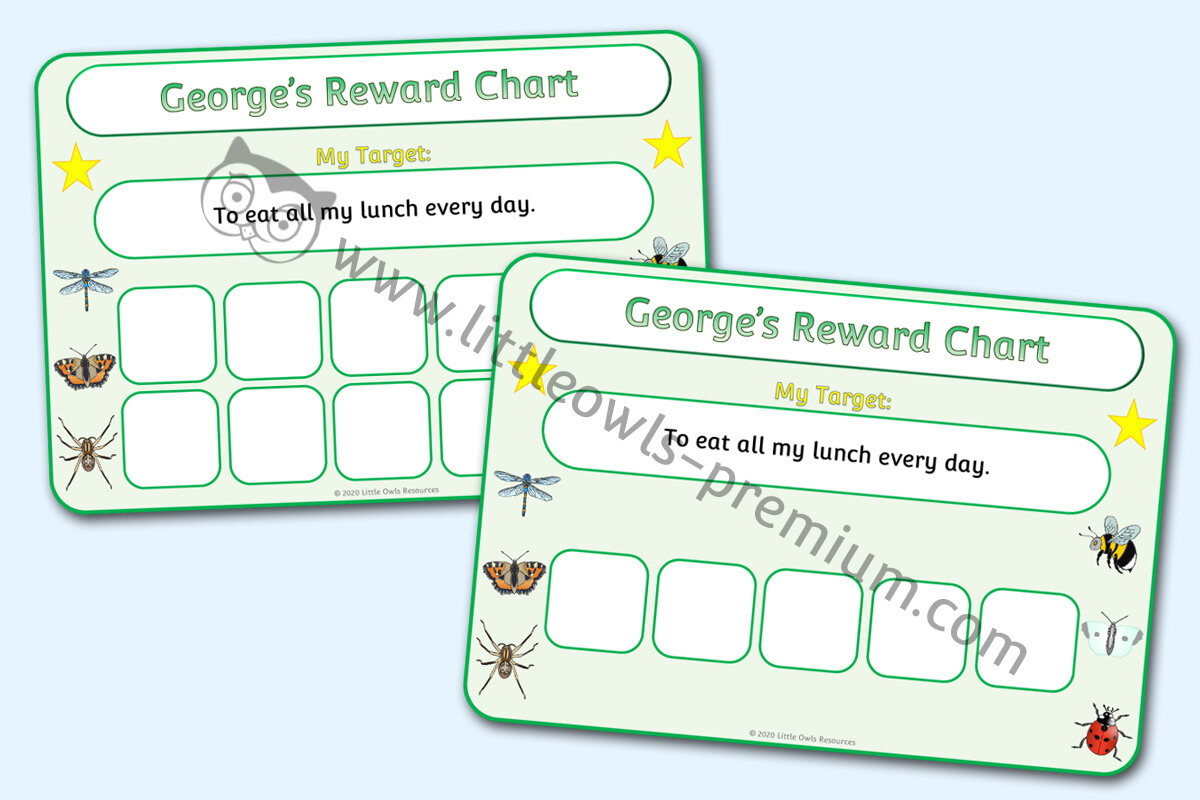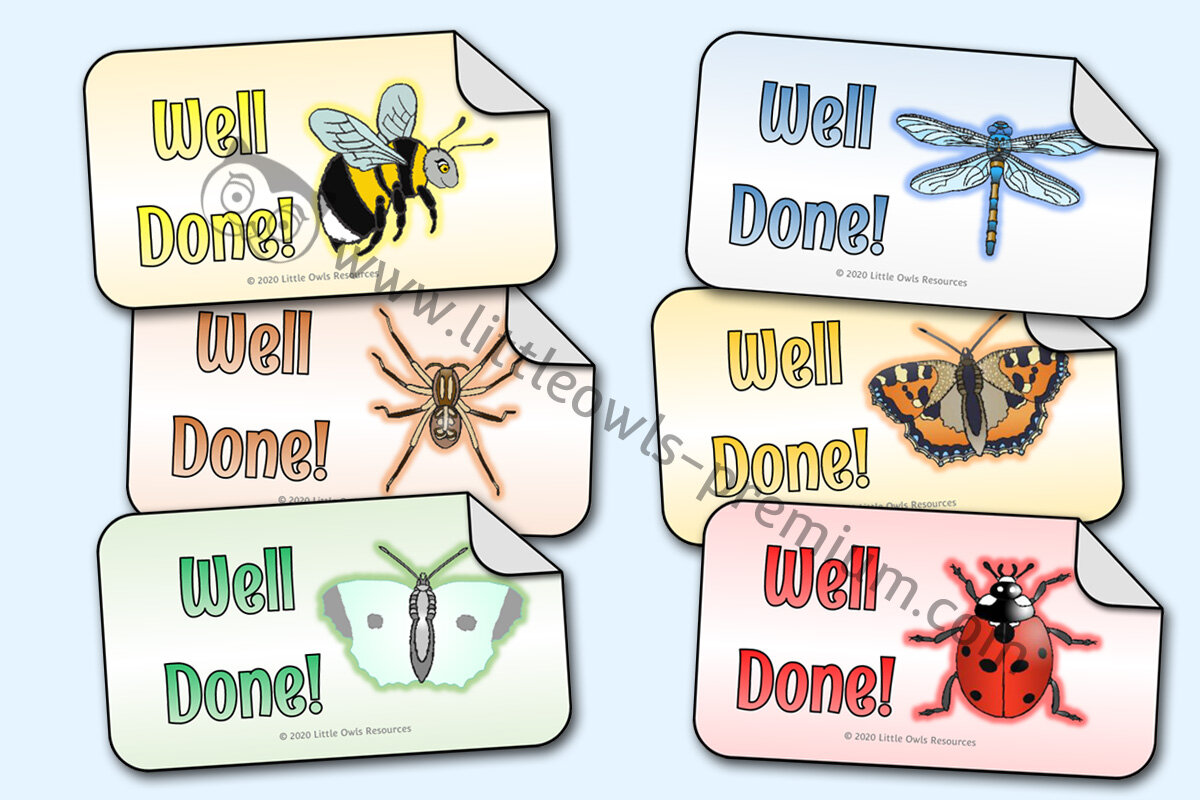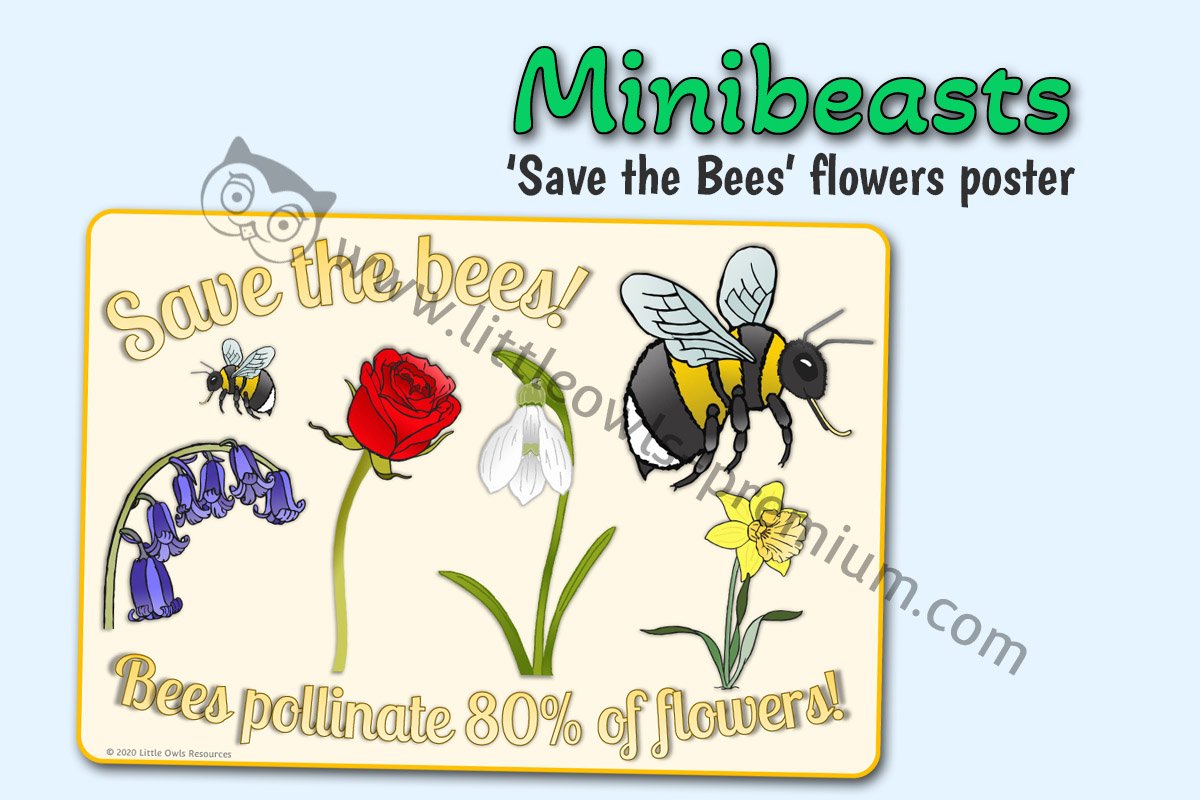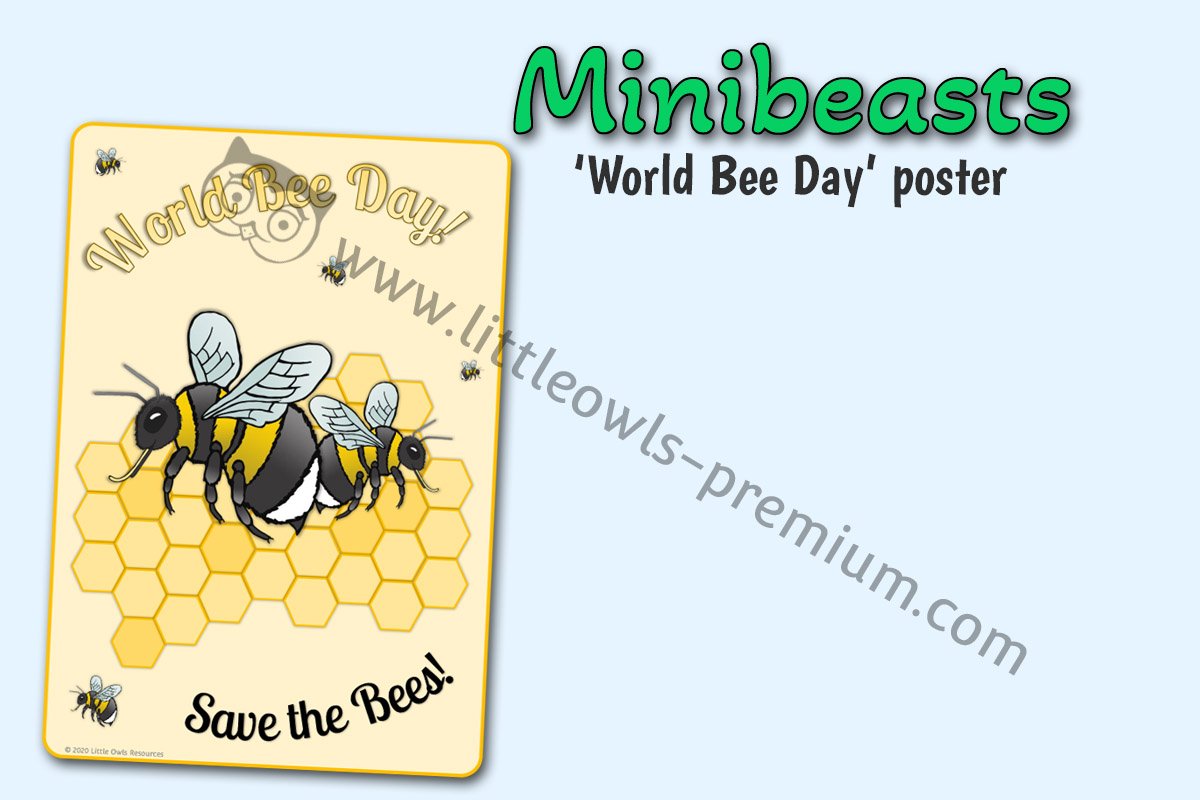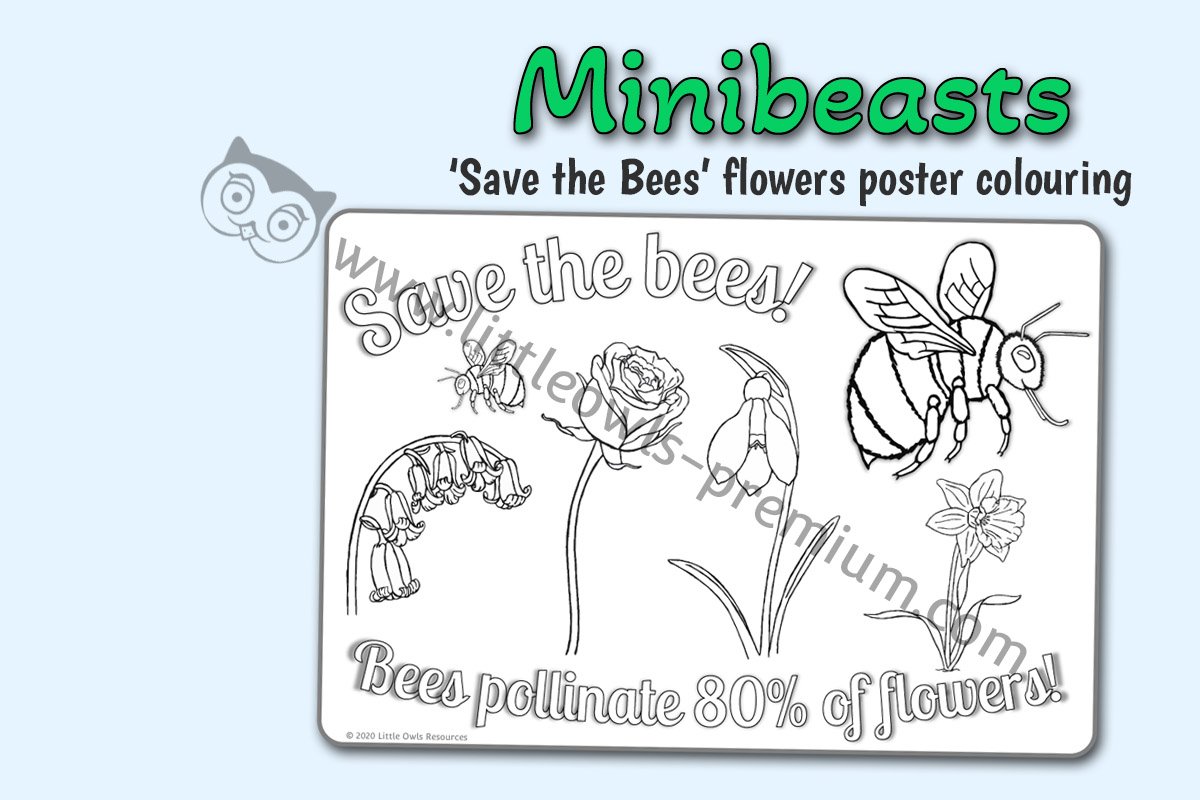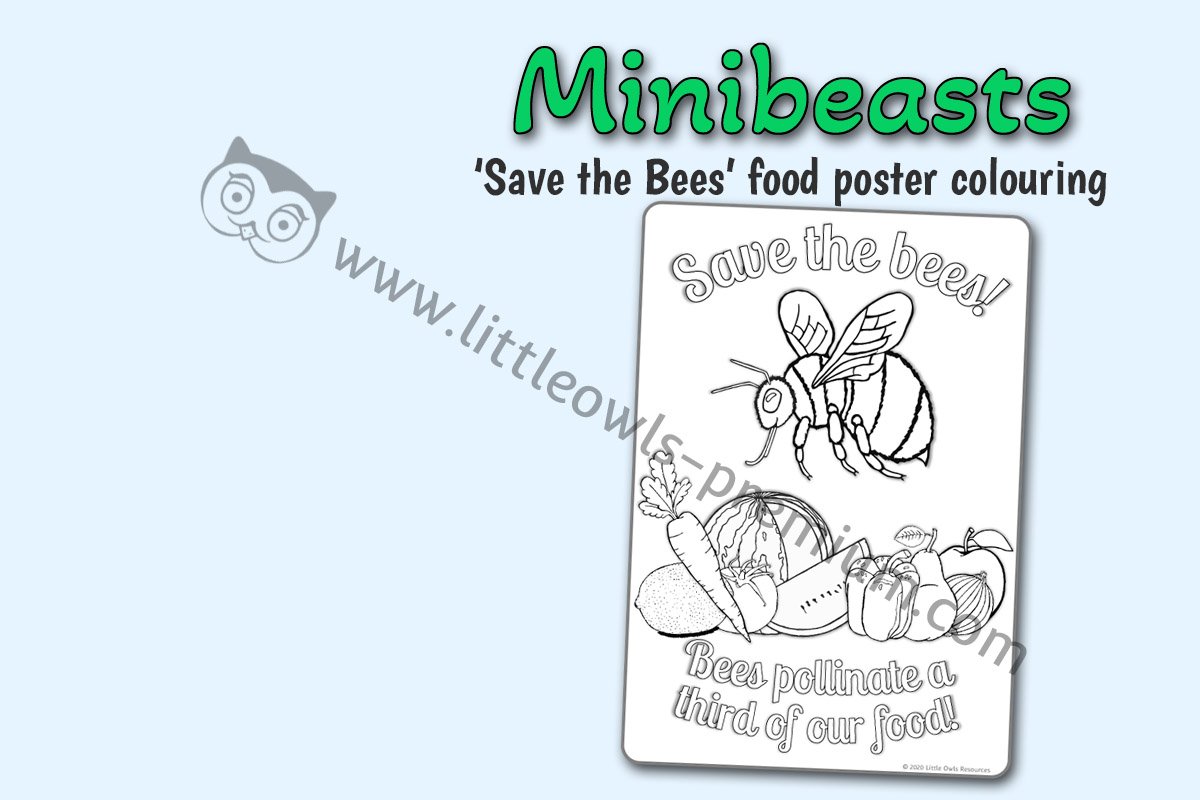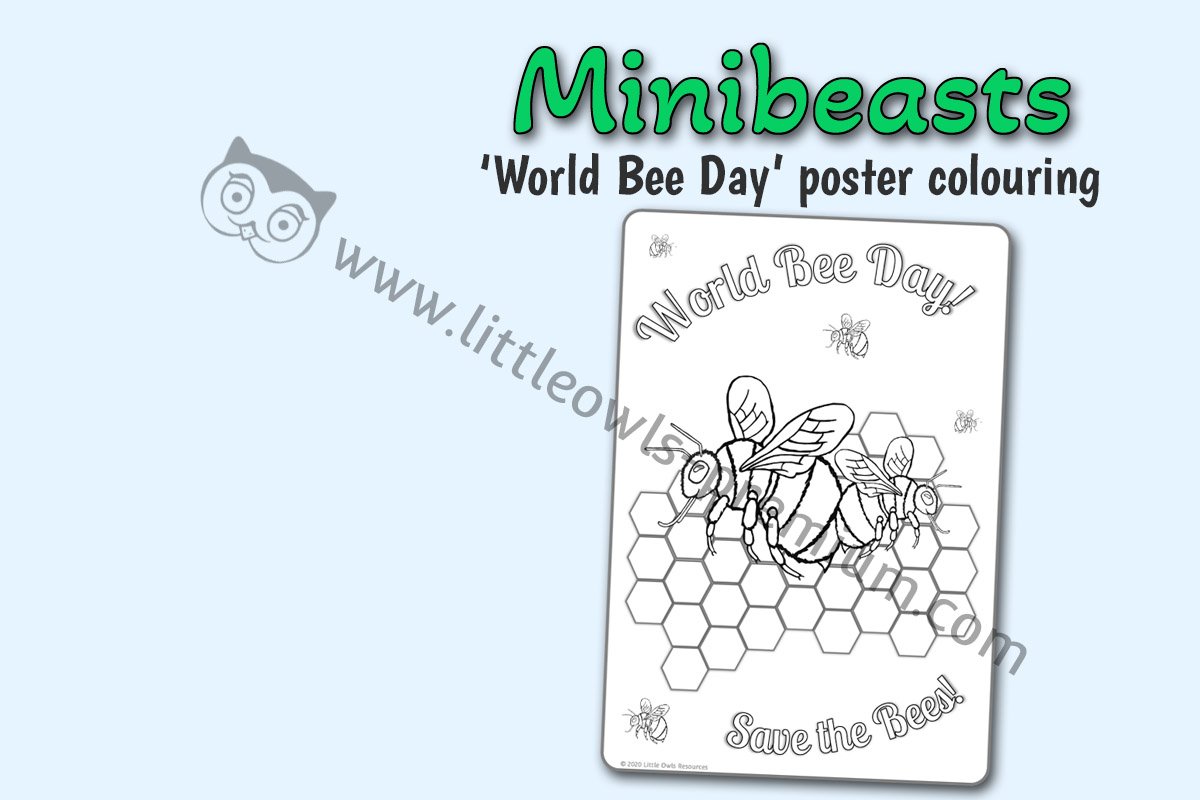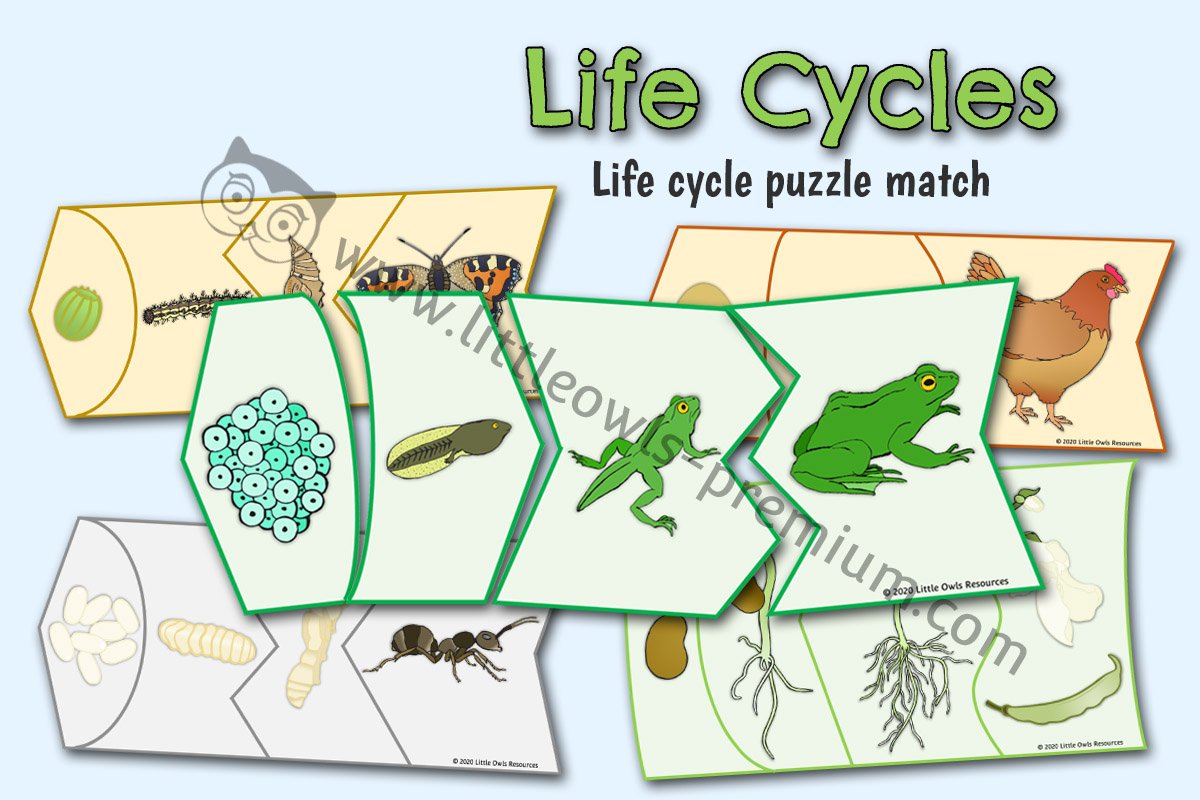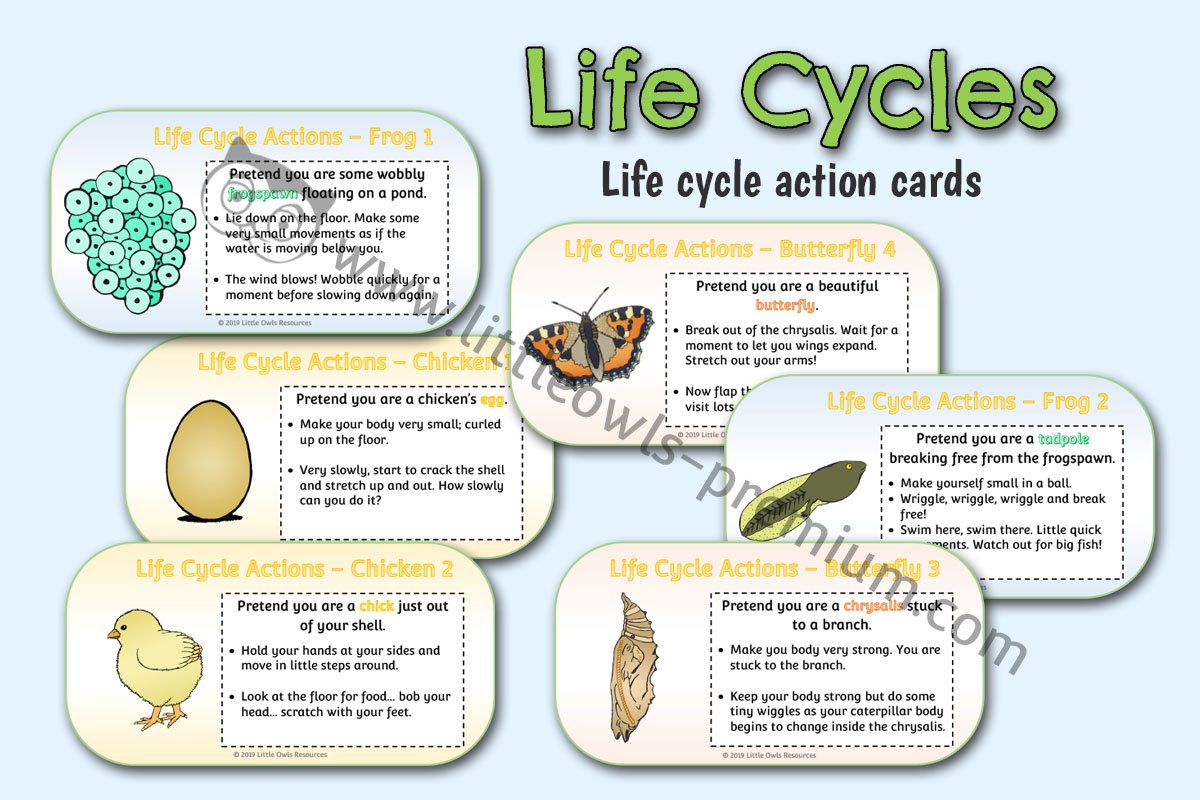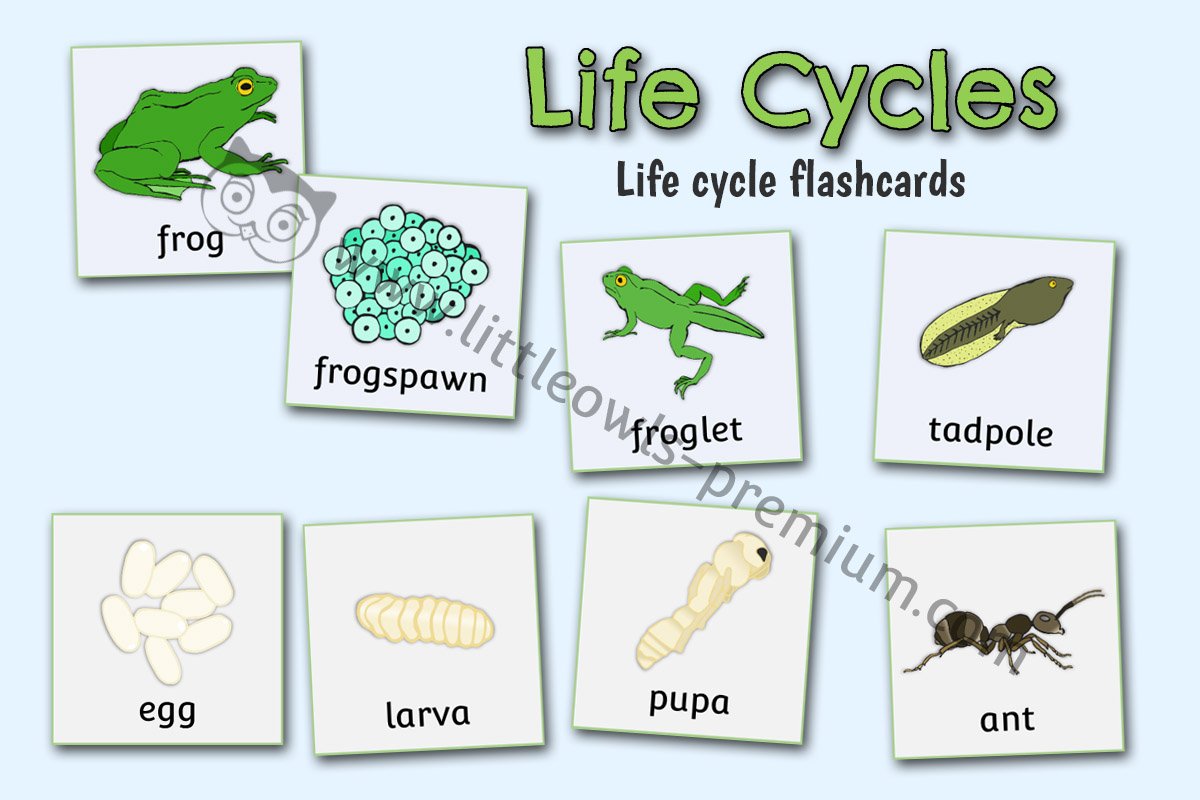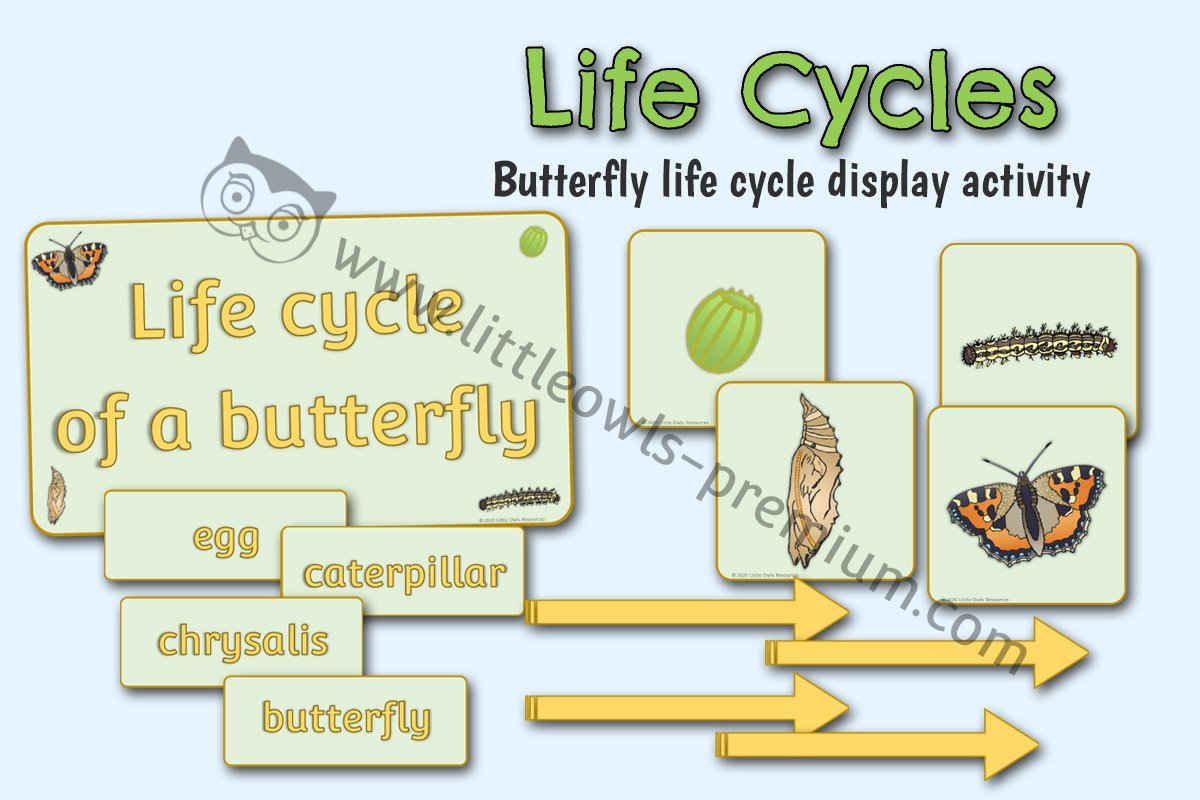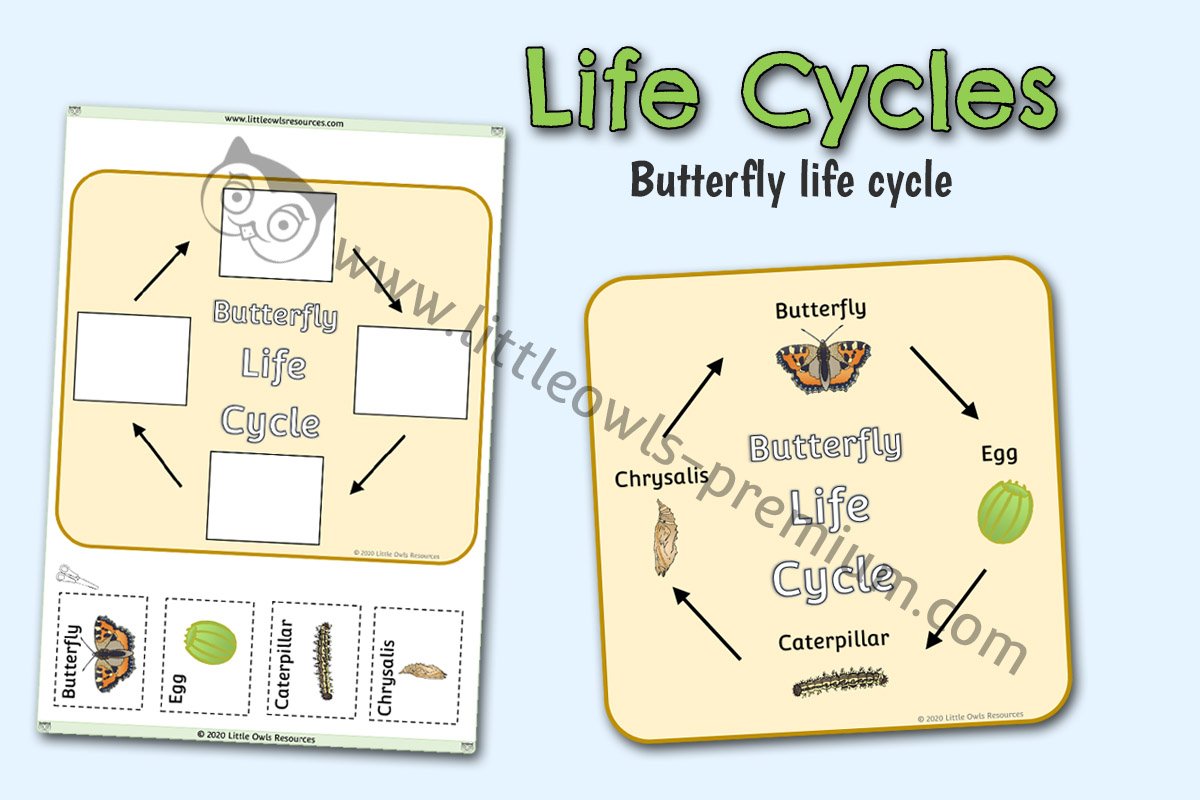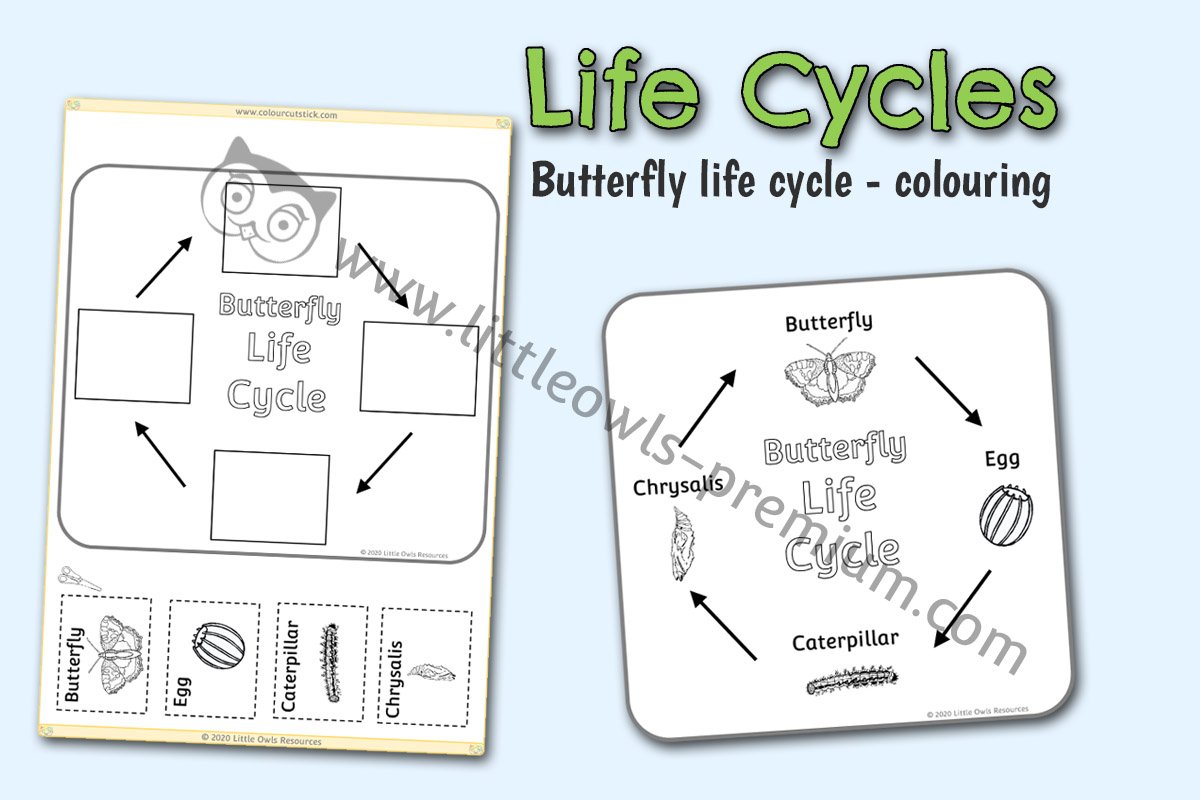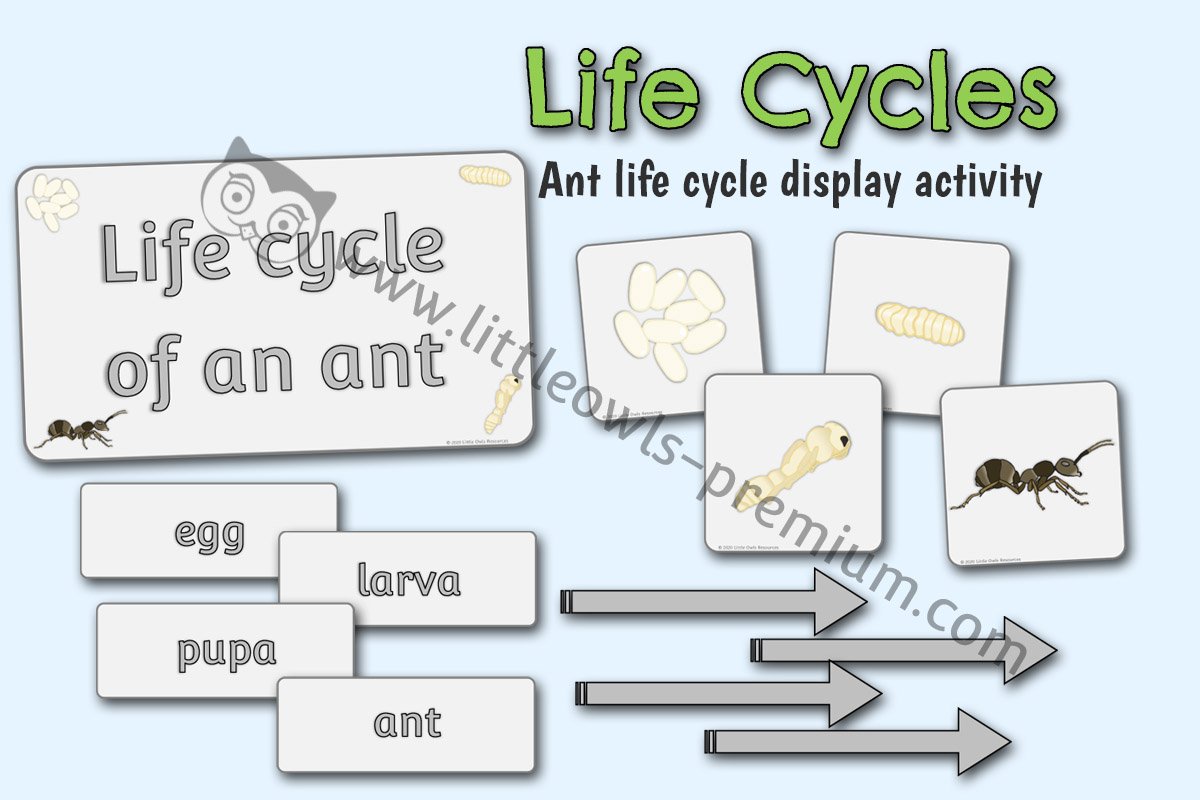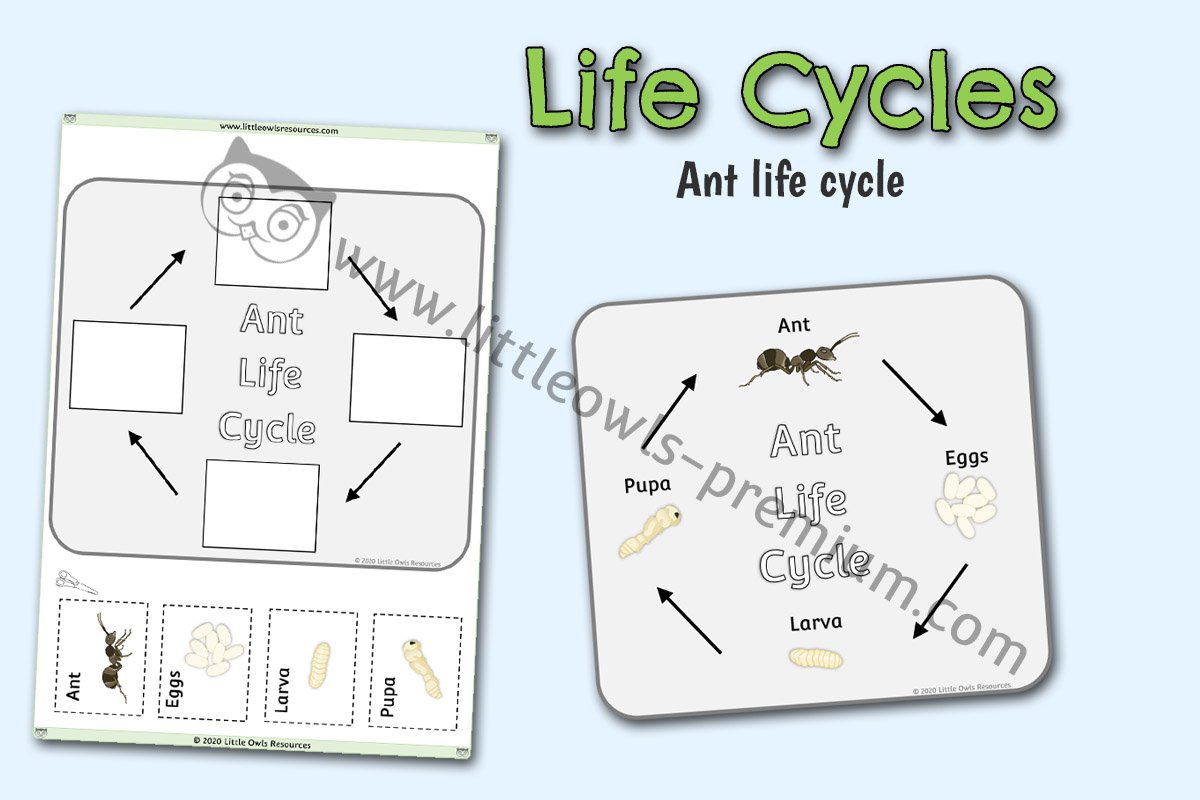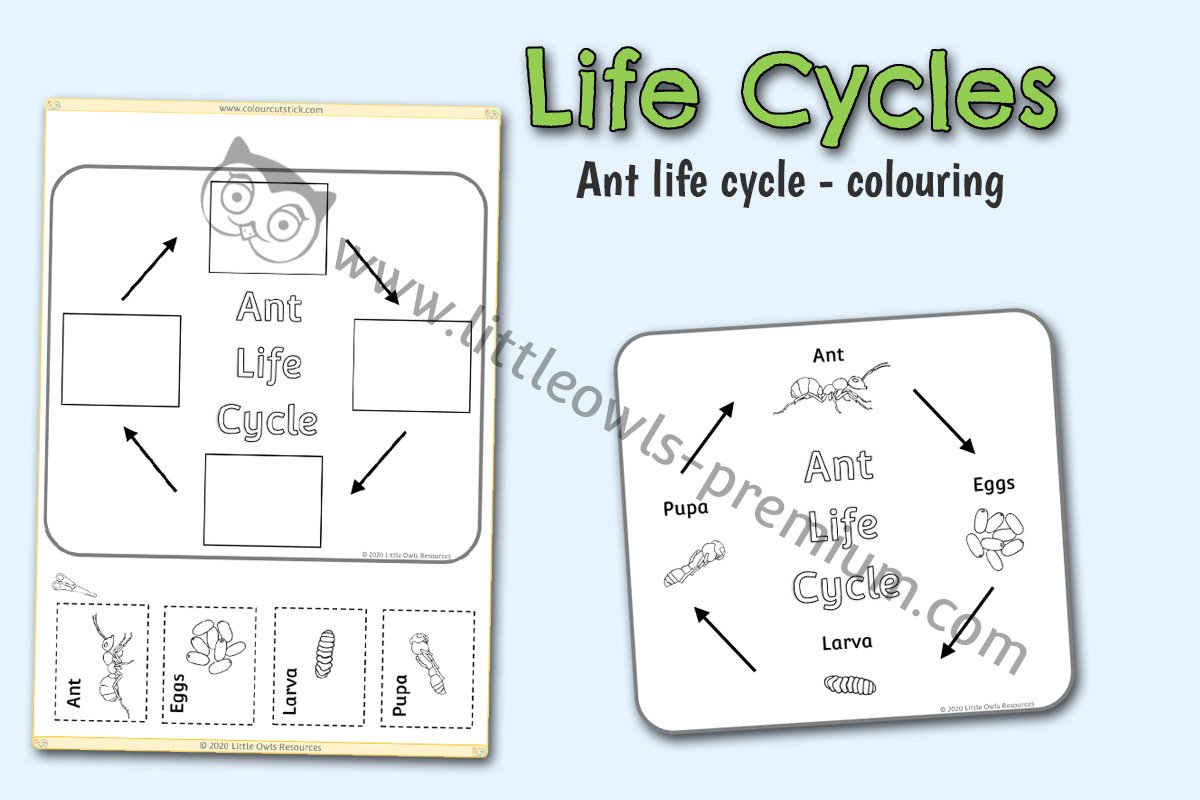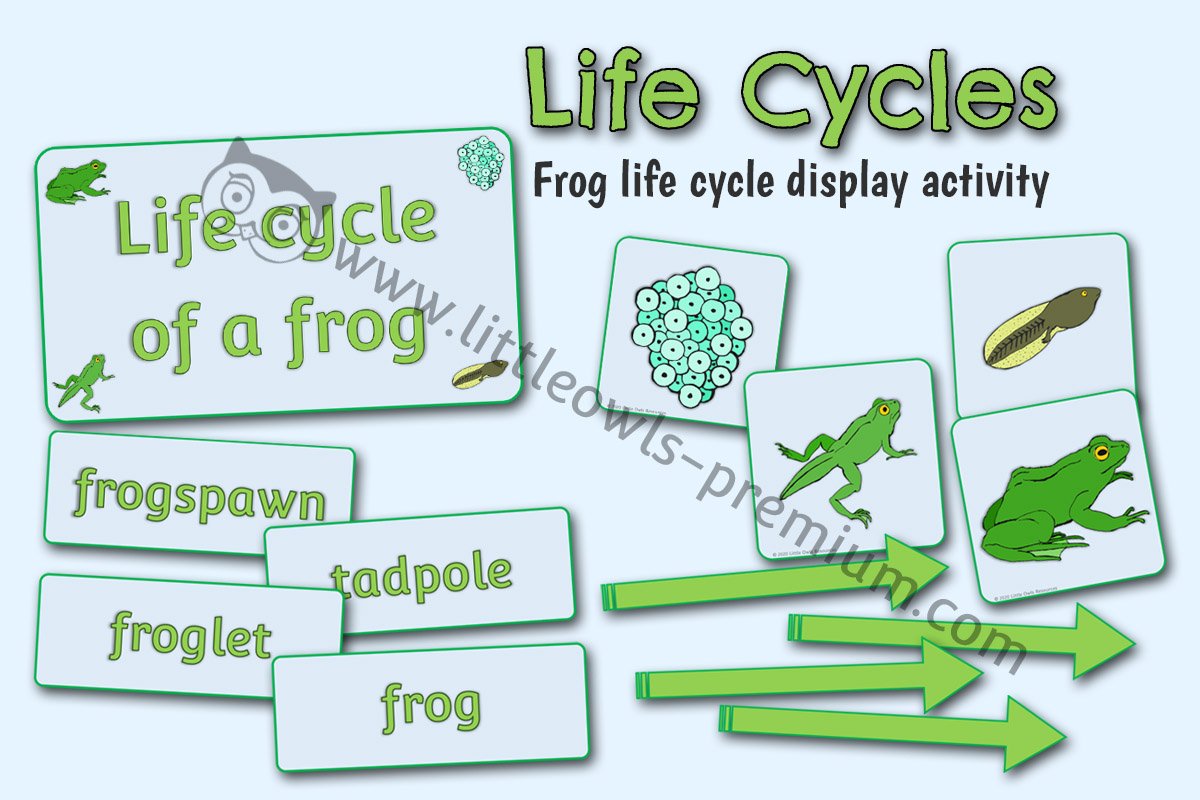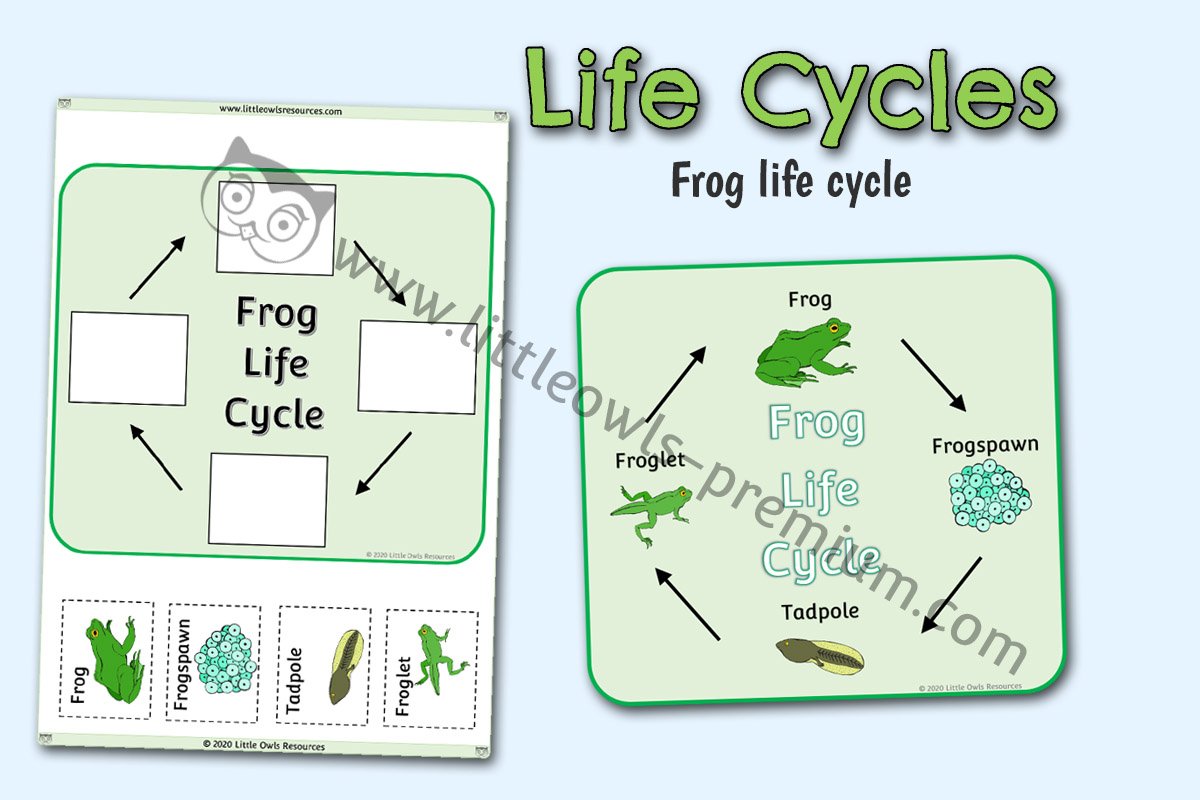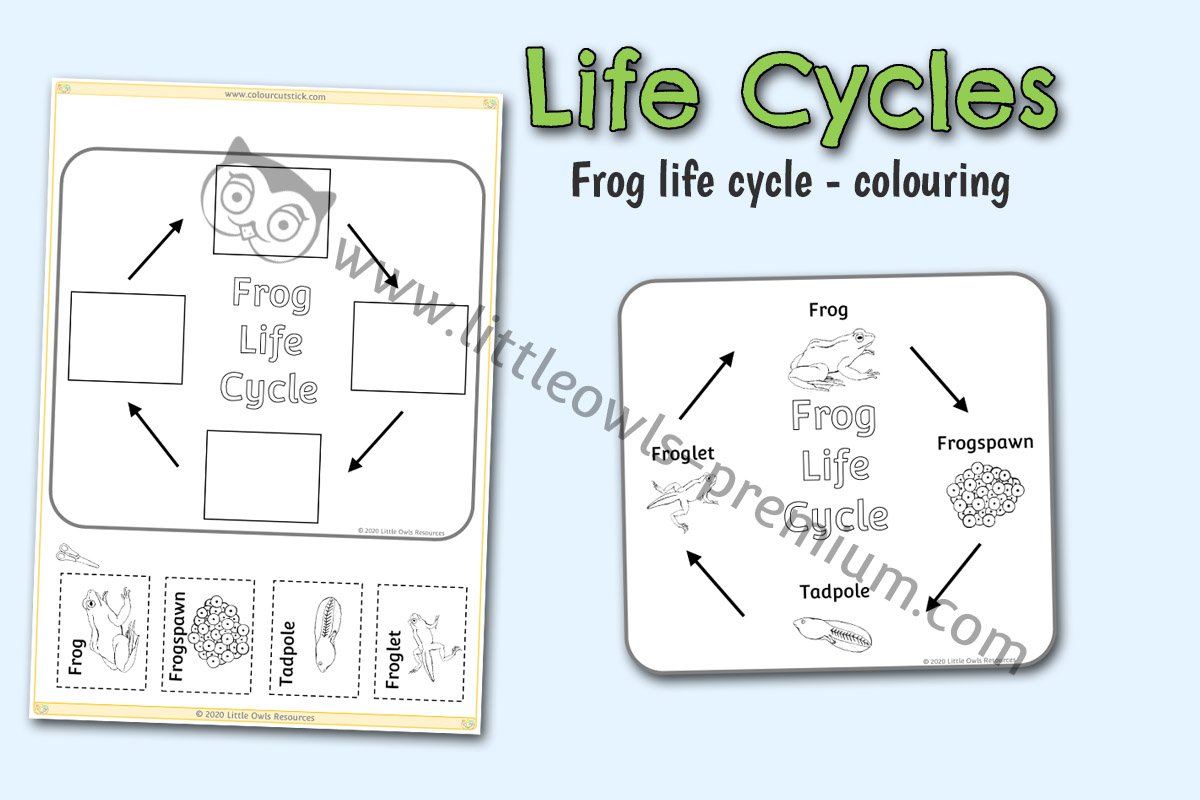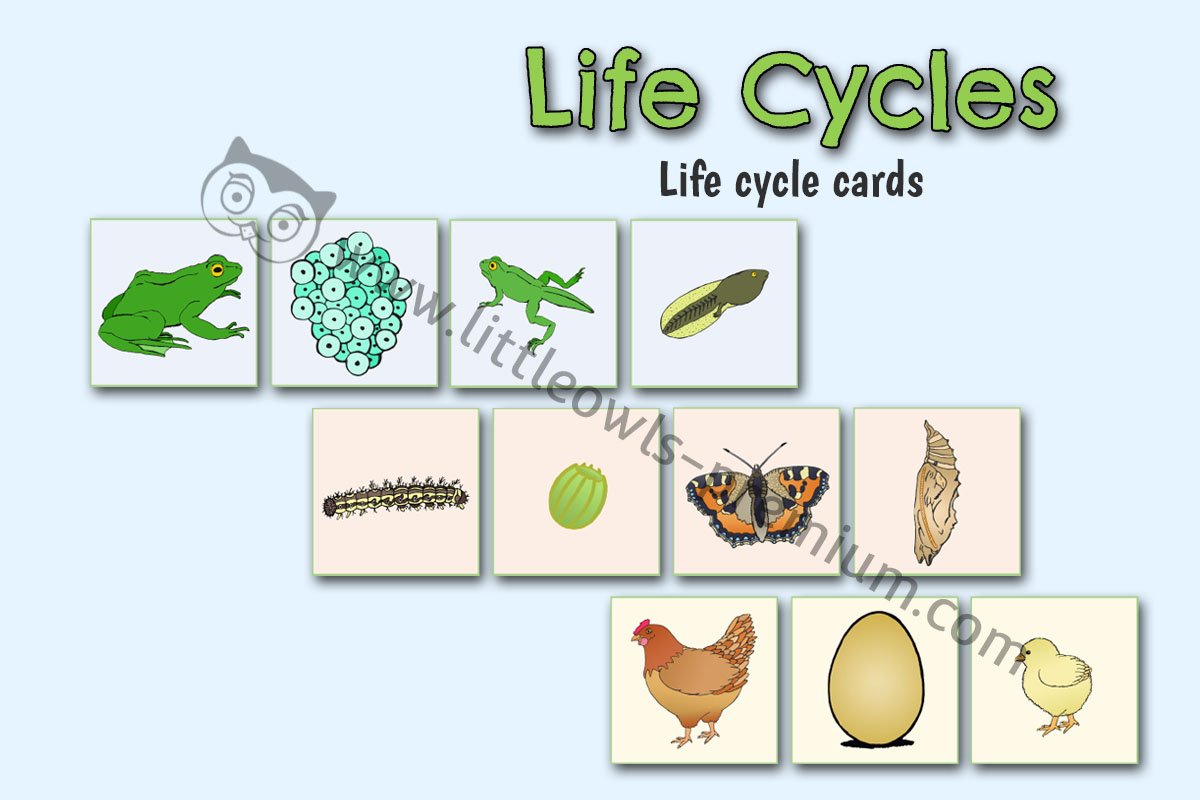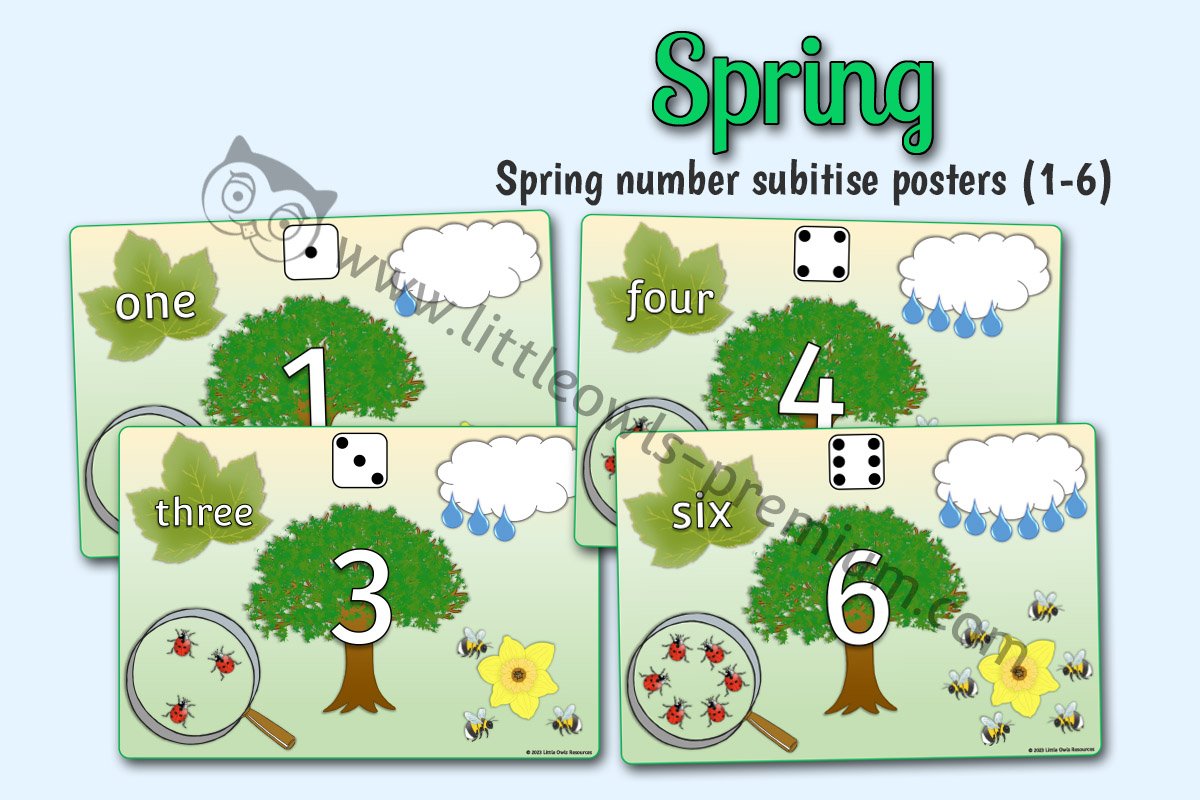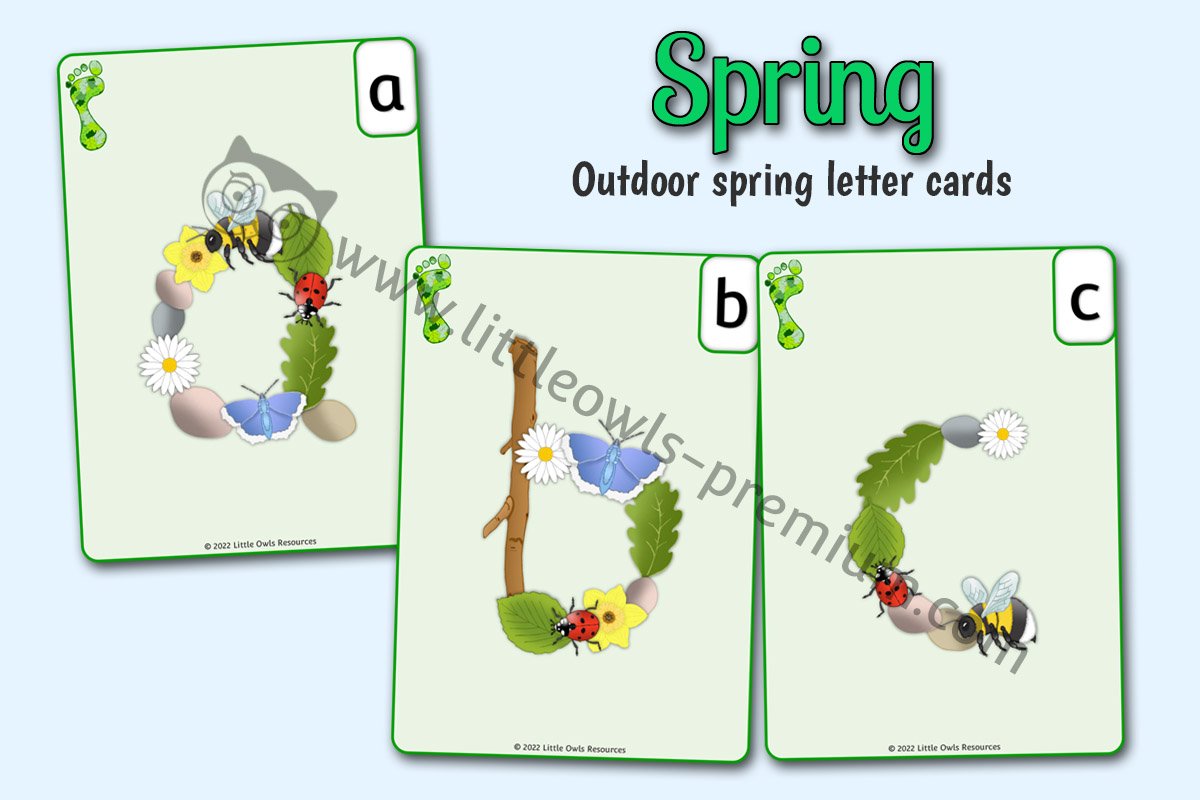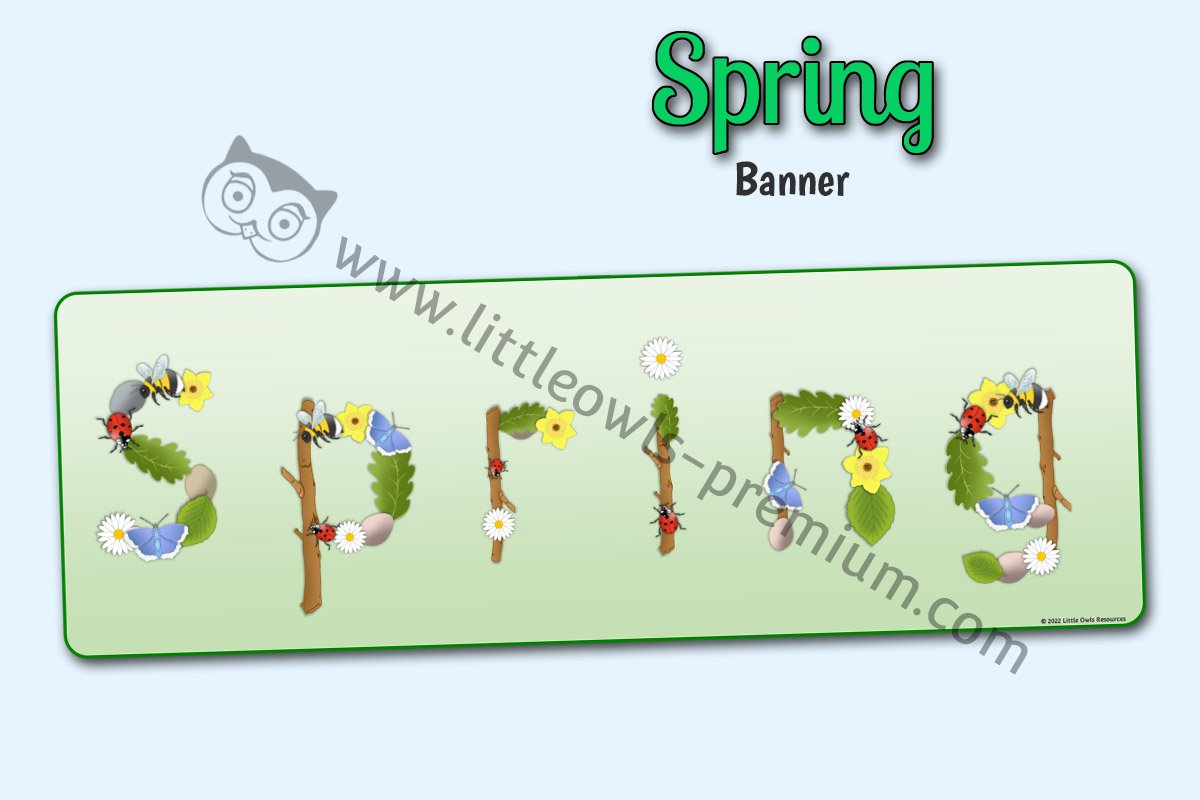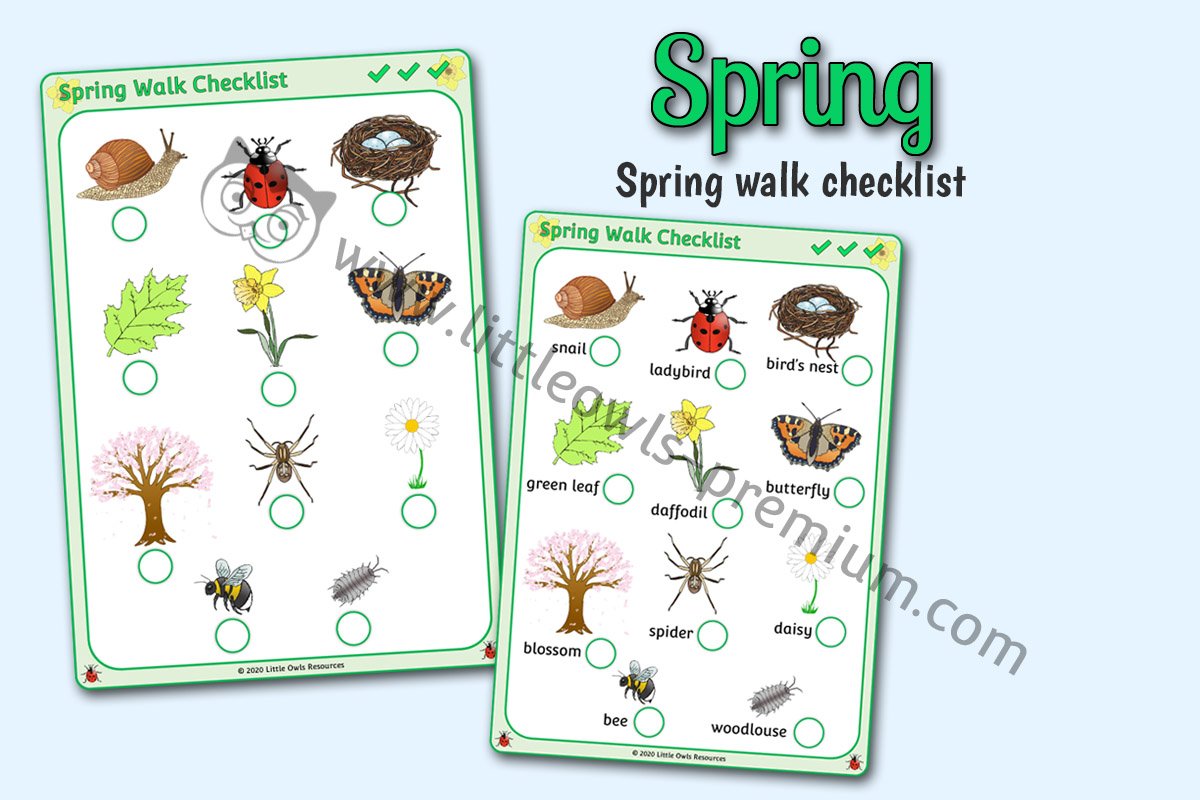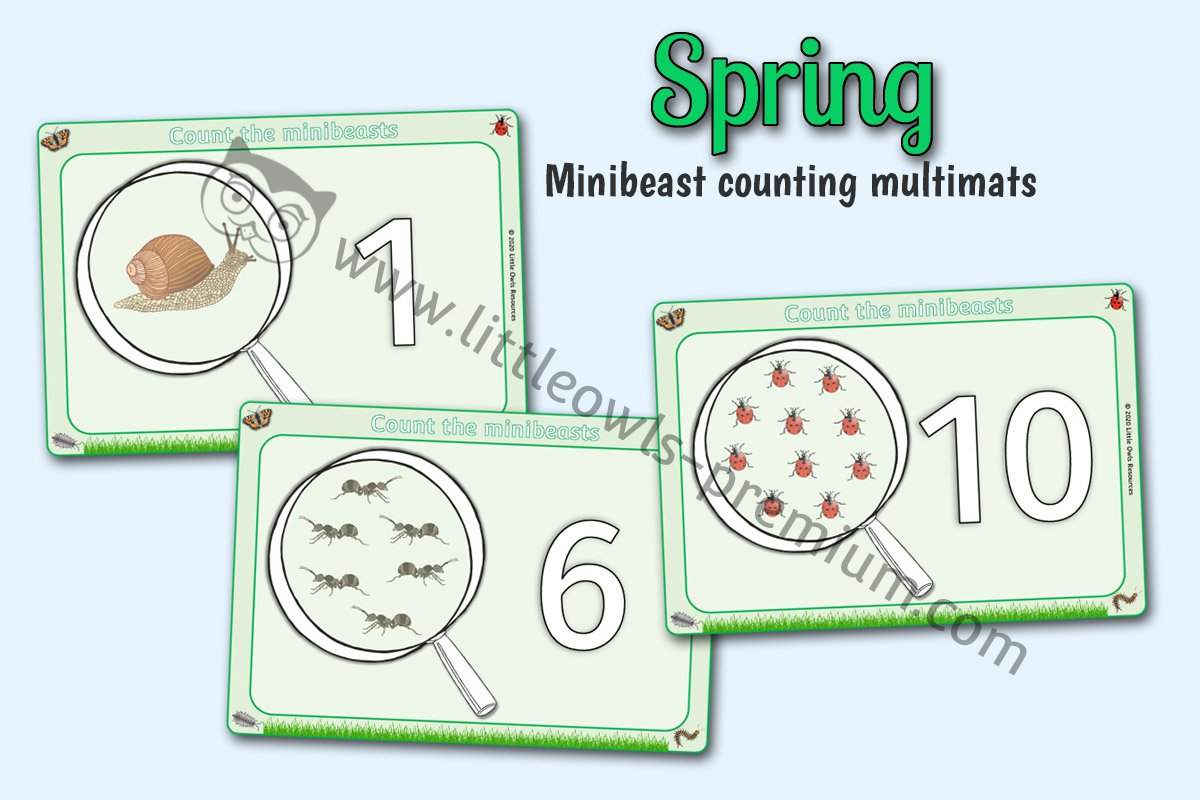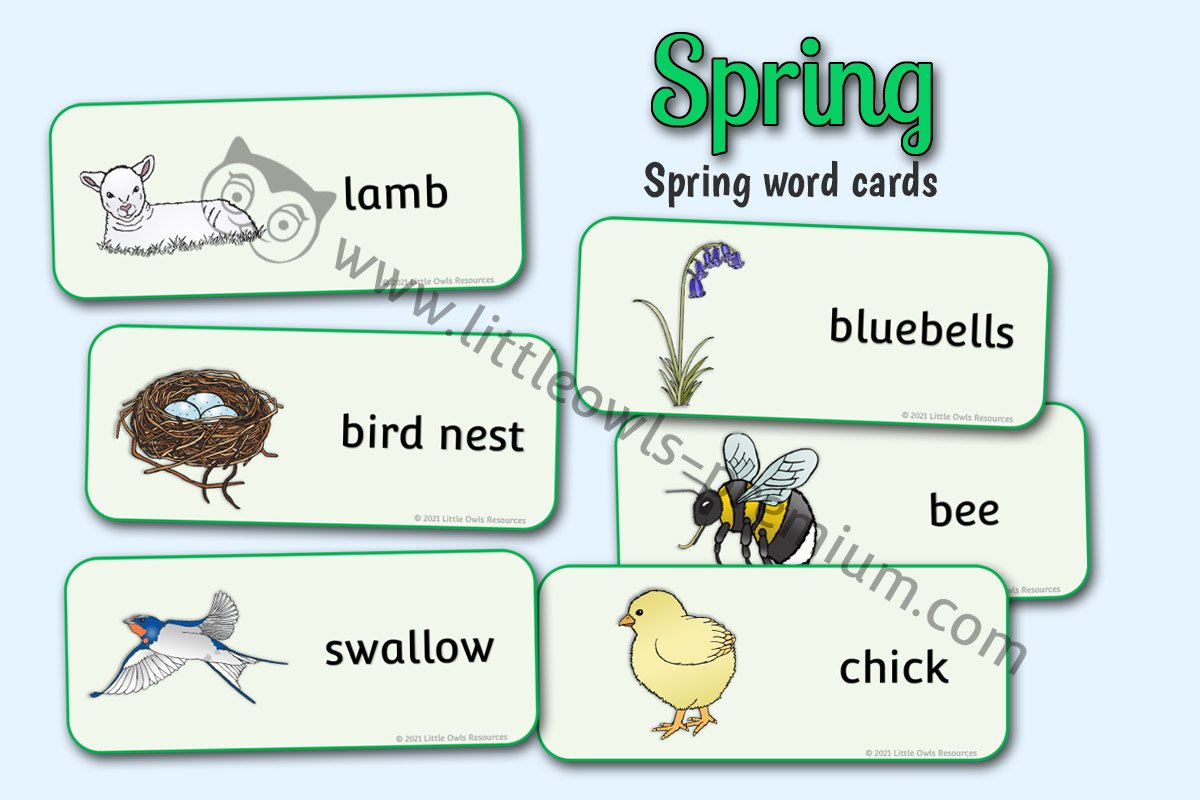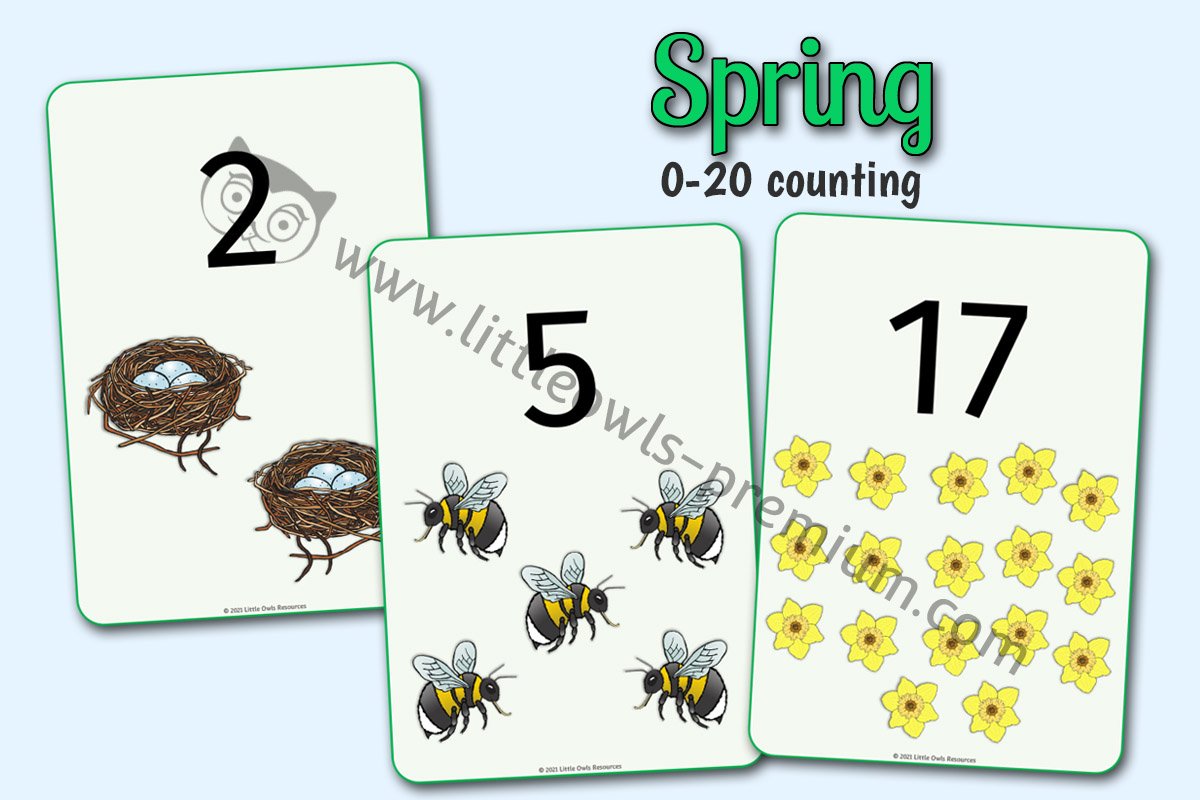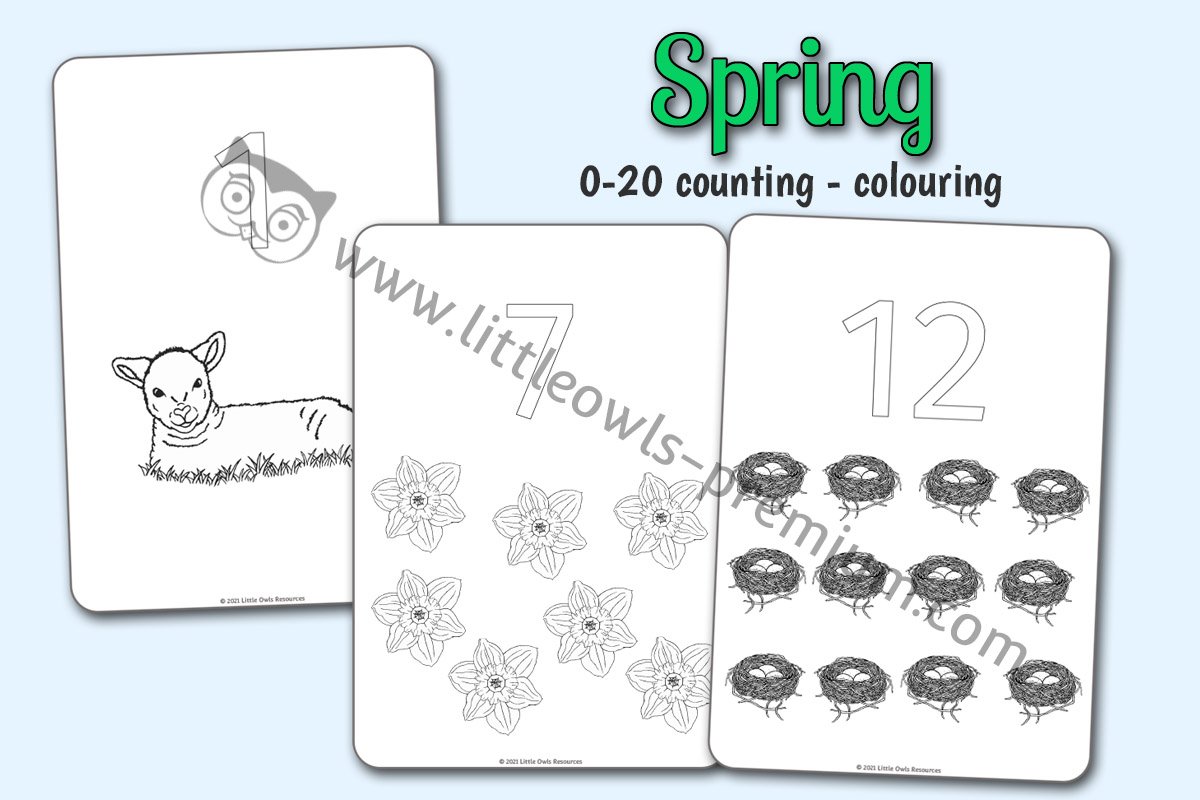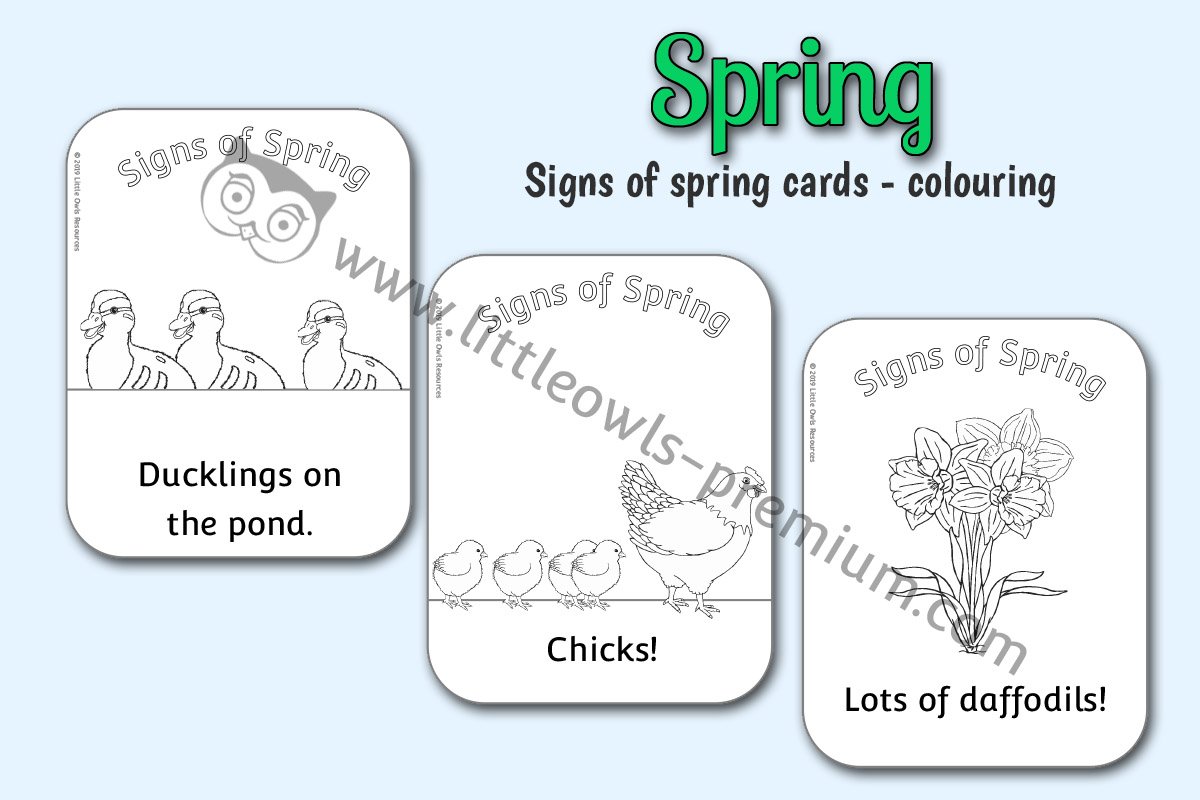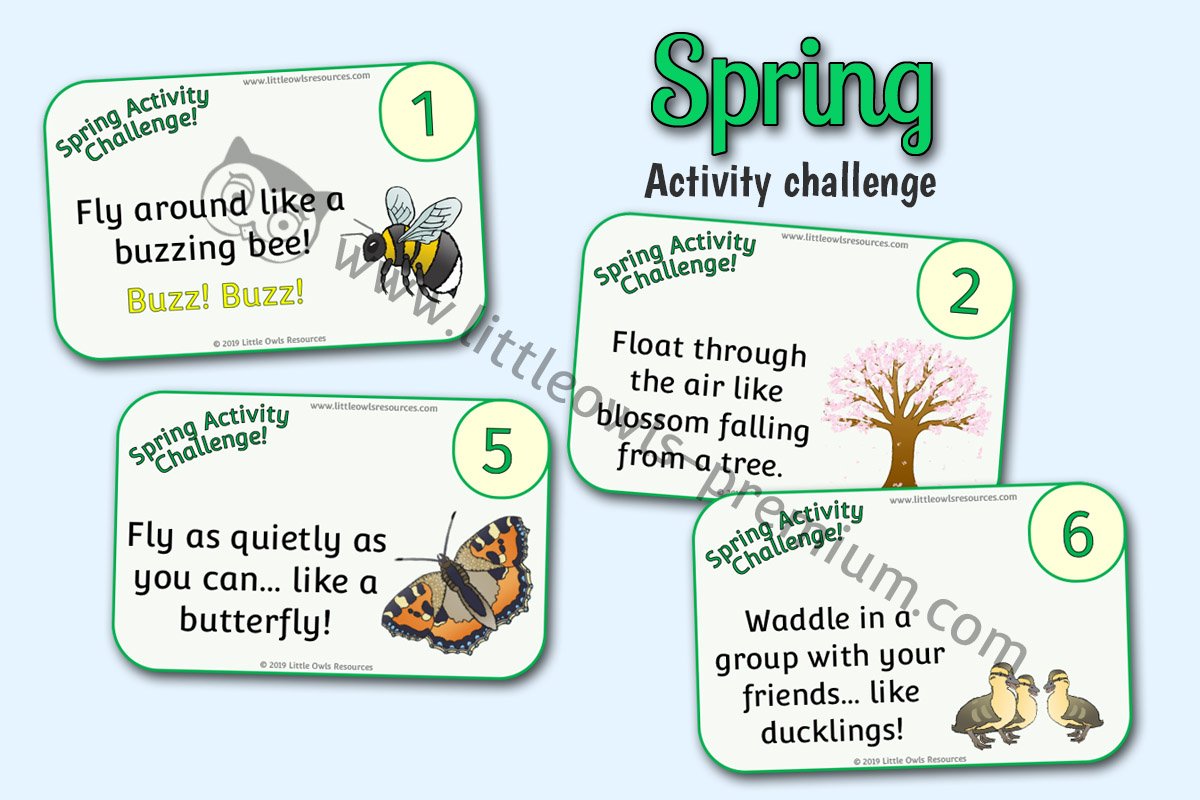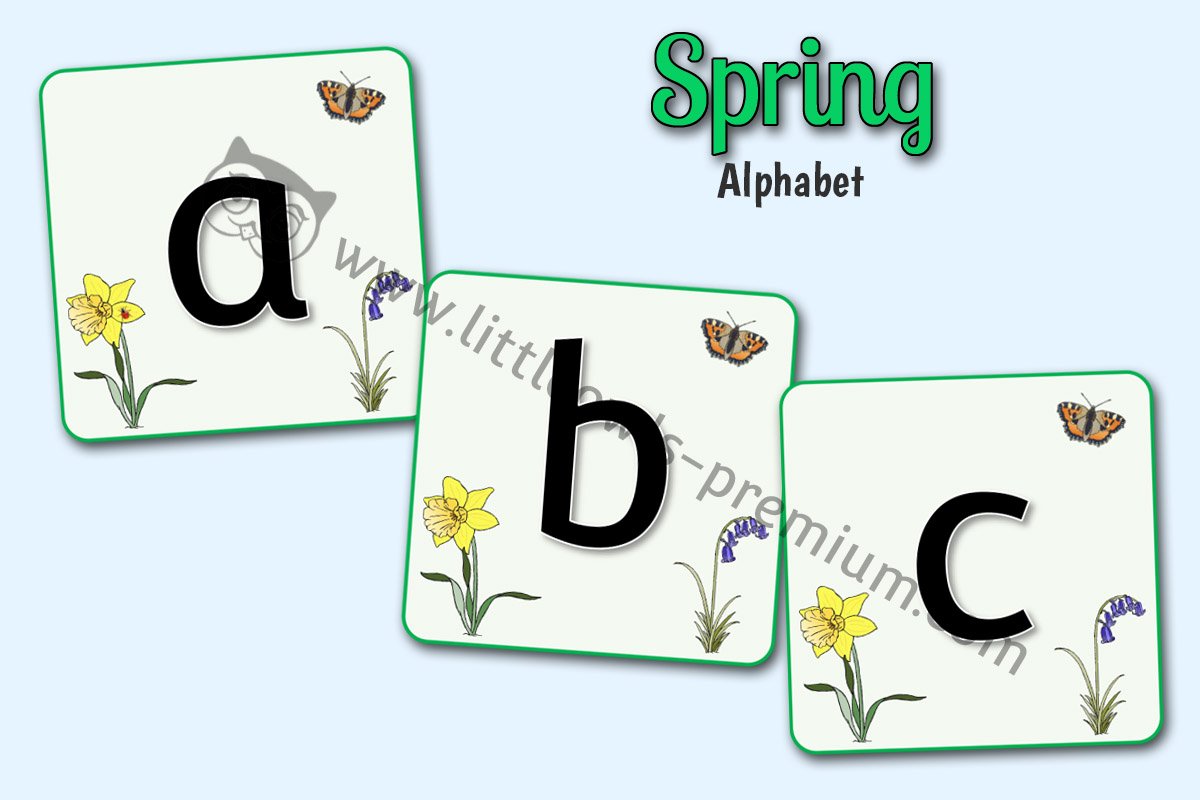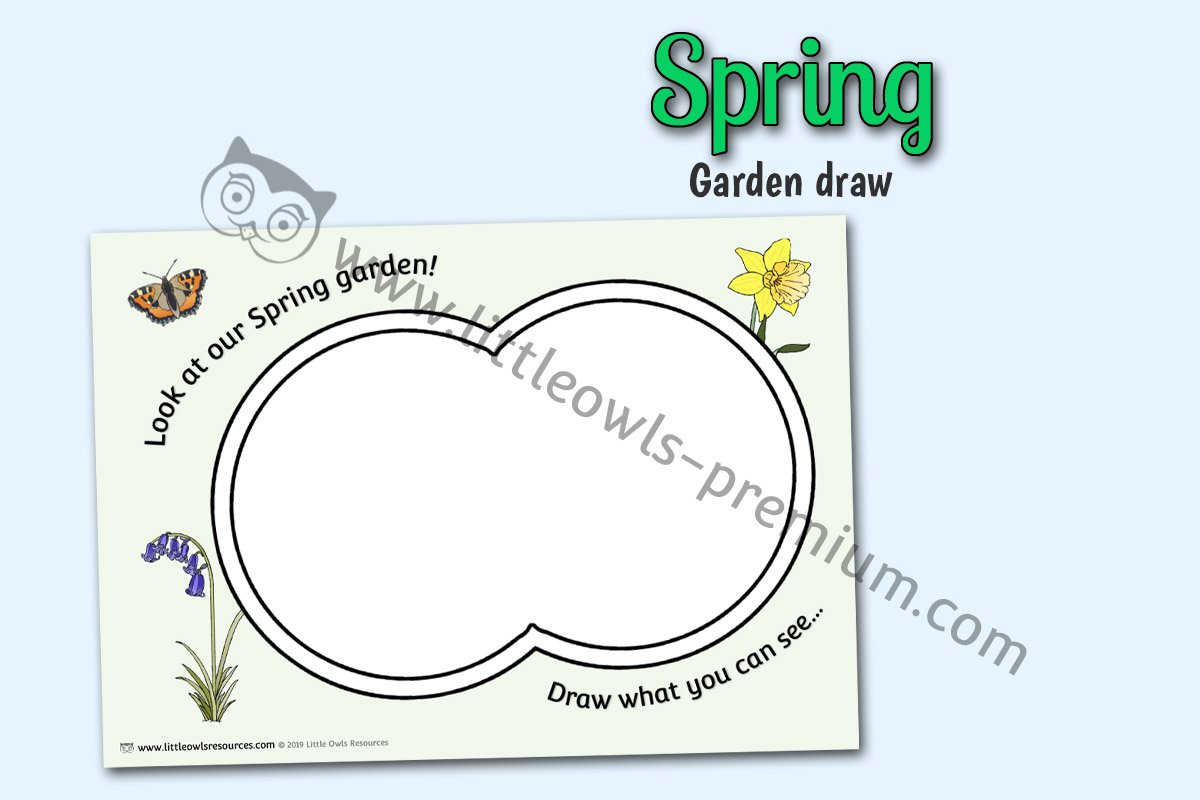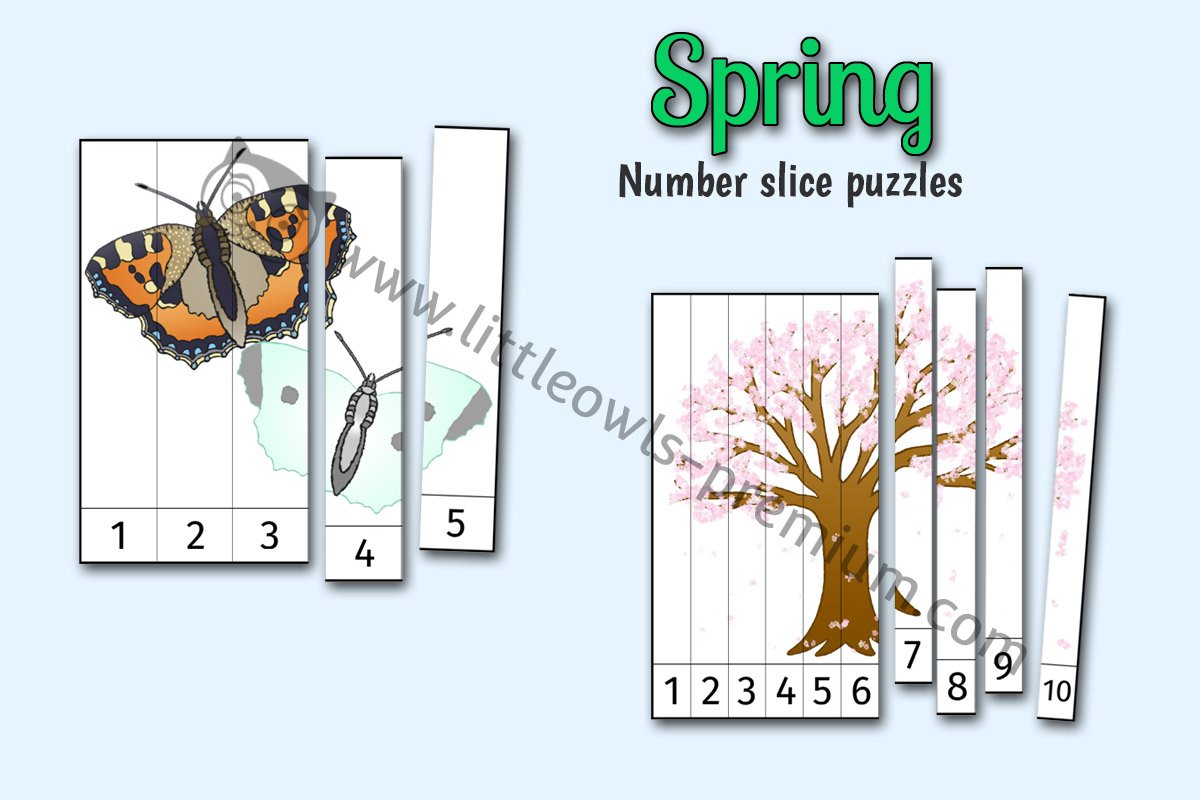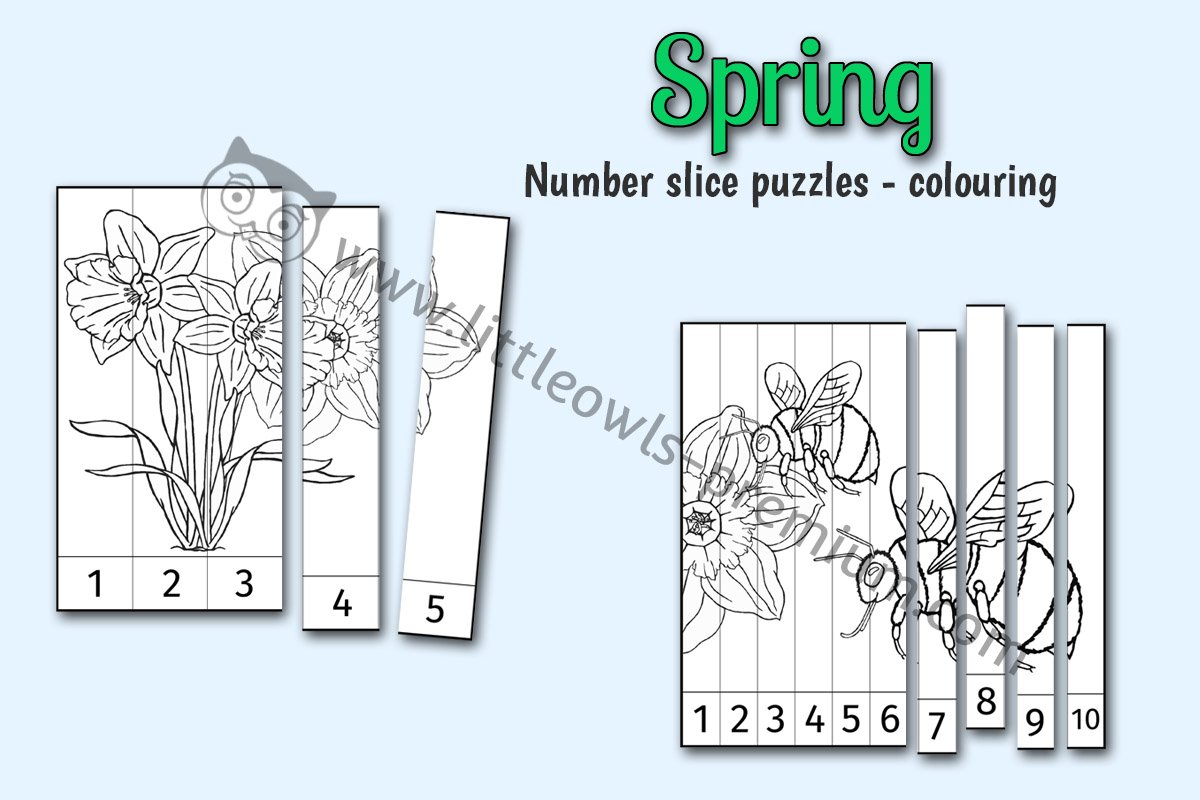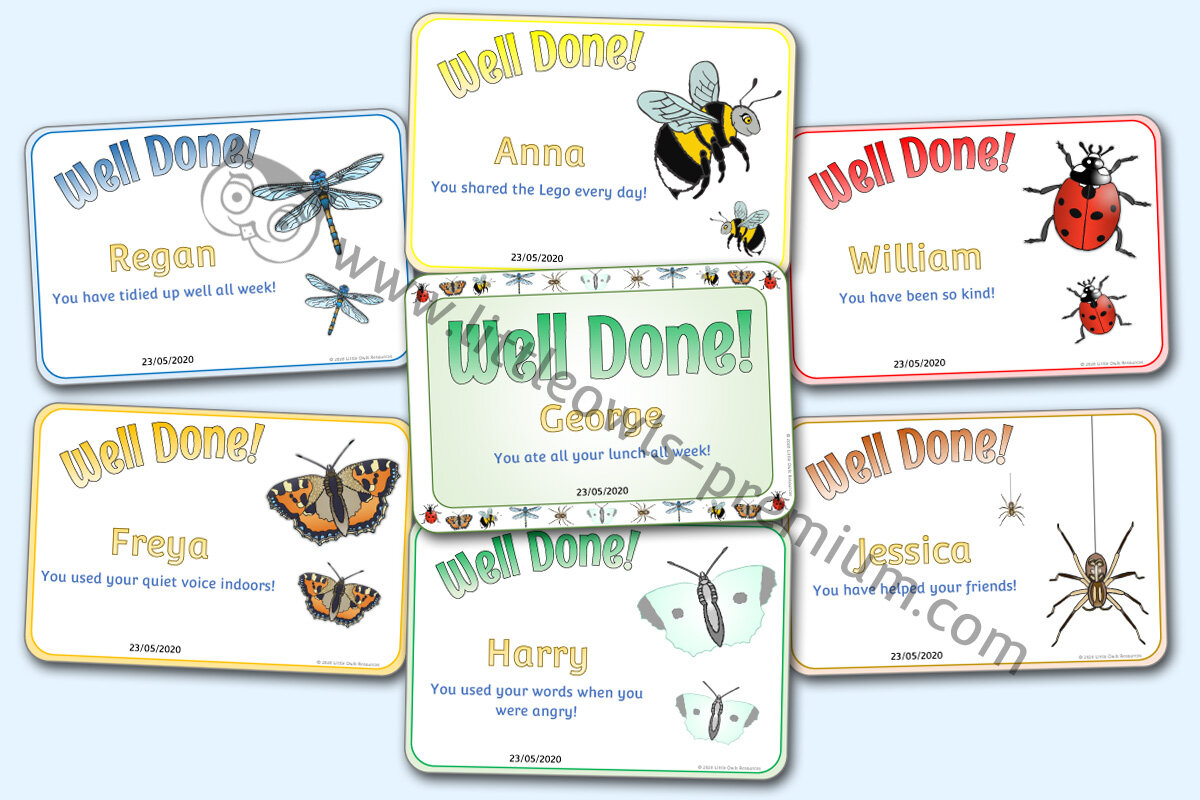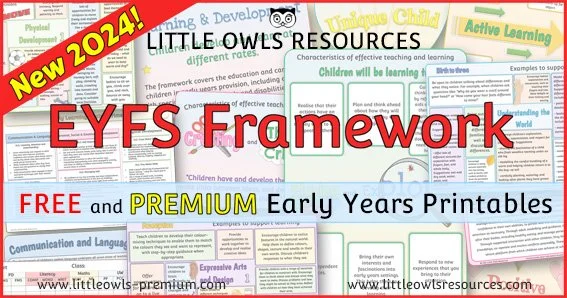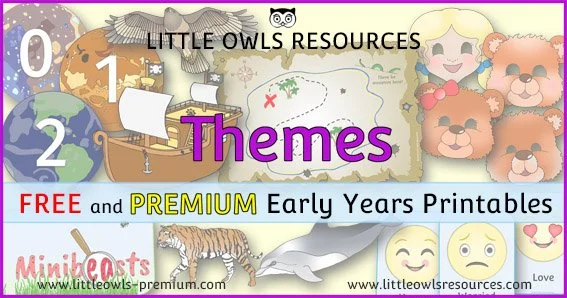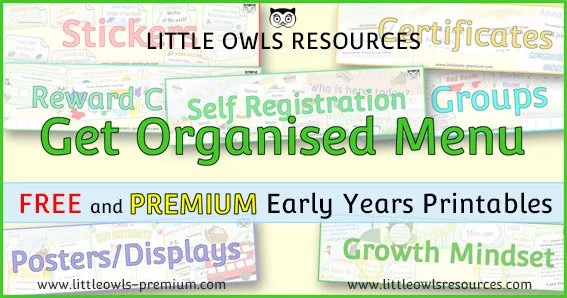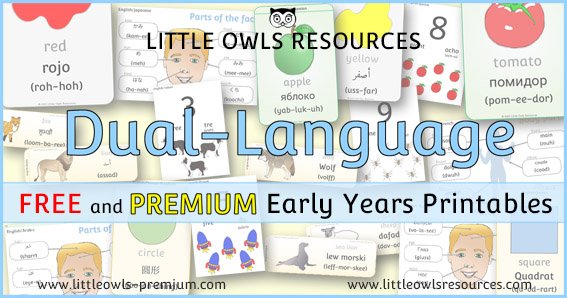Minibeasts: EYFS/Early Years activities, Displays and ideas
Welcome to the wonderful world of minibeasts! Dive into a realm of tiny creatures and discover the fascinating lives that exist right under our feet. On this page, young explorers will embark on a journey through the garden, encountering colourful butterflies, buzzing bees, and crawling critters. Get excited with our Minibeasts Search Checklist, encouraging little ones to hunt for these fascinating creatures outdoors. Challenge their physical skills with our Minibeast Movement Challenge Cards, where they can mimic the movements of their favourite insects. Enhance their knowledge with our informative Minibeast Fact Cards, and explore the wonders of nature with our engaging Life Cycle Activities. With a variety of activities designed to spark curiosity and foster learning, prepare for a fun-filled adventure into the world of minibeasts! 🐞🦋🐜
Please scroll down to browse our Mini beast themed activity ideas, printable educational materials, planning inspiration, display resources, classroom & setting management tools and much more! If you’re looking for Preschool, Nursery, Childminder, Reception, SEND or Home Education resources for 0-7 year olds, you’ve come to the right place! Our interactive and engaging EYFS and KS1 learning resources are lovingly made (including original hand drawn images) by early years teaching and learning experts; a husband and wife team. We hope it helps! 😊
SECTIONS ON THIS PAGE:
Featured resources
General (You can use the drop-downs below to filter by Area of Learning, Resource Title or Keyword for resources within this section) Please note that more resources are available in other sections on this page.
Area of Learning/Resource Title
- Area - Communication and Language
- Area - Expressive Arts and Design
- Area - Literacy
- Area - Mathematics
- Area - Personal Social and Emotional
- Area - Physical
- Area - Understanding the World
- BANNER
- BEE BODY PARTS
- BEE COUNTING PUZZLES (1-10)
- BORDER SHEETS
- BUTTERFLY COUNTING
- BUTTERFLY COUNTING PUZZLES
- BUTTERFLY PHASE 2 KEYWORDS
- COLOUR CUT STICK NUMBER PUZZLES
- COLOUR and COUNT
- COLOURING
- COUNTING MINIBEASTS - LARGE
- COUNTING MINIBEASTS - SMALL
- COUNTING POSTERS
- COUNTING PUZZLES
- COUNTING PUZZLES - COLOURING
- DISPLAY ALPHABET CARDS
- DRAW MINIBEASTS SHEET
- FINE MOTOR LADYBIRDS
- I SPY COUNT AND CHOOSE - BUTTERFLIES
- LADYBIRD PHASE 3 KEYWORDS
- MINIBEAST CHECKLIST (2020)
- MINIBEAST MULTIMATS
- MINIBEASTS DOUBLING MATS
- MOVEMENT/ACTIVITY CHALLENGE
- MY FAVOURITE/FAVORITE SHEETS
- NUMBER SLICE PUZZLES
- PICTOGRAM CHART
- PICTURE SNAP CARDS
- REWARD CHARTS
- SAVE THE BEES! FLOWERS - COLOURING
- SAVE THE BEES! FLOWERS POSTER
- SAVE THE BEES! FOOD - COLOURING
- SAVE THE BEES! FOOD POSTER
- SEARCH CHECKLIST
- SIZE ORDERING - COLOURING
- SIZE ORDERING CARDS
- TALLY CHART
- WELL DONE! STICKERS
- WORD CARDS
- WORD MAT
- WORLD BEE DAY! - COLOURING
- WORLD BEE DAY! POSTER
Keywords
- 'Butterfly Education and Awareness Day' (BEAD) 5
- 'World Bee Day' 8
- Activity 19
- Activity Packs 1
- Alphabet 1
- Animal Homes 1
- Ant 12
- Art and Craft 2
- Bumblebee 32
- Butterfly 29
- Cards 8
- Caterpillar 5
- Celebrating Achievement 2
- Centipede 14
- Checklists/Tally Charts 2
- Chrysalis 1
- Colour & Count 2
- Colour Cut & Stick 3
- Colouring 9
- Concepts 2
- Counting 13
- Design Your Own 1
- Discussion Prompts 15
- Doubling 1
- Dragonfly 19
- Drawing 3
- Earthworm 17
- Earwig 1
- Fine Motor 26
- Fly 14
- Games 8
- Graph/Charts 2
- Gross Motor/Movement 1
- Group Activity 5
- High Frequency Words 2
- Home Learning 9
- Ladybird 28
- Laminate to use with w/b pens 9
- Letters & Sounds - Phase 2 1
- Letters & Sounds - Phase 3 1
- Mark Making/Drawing/Writing 16
- Matching Activities 4
- Measures - Size 2
- Number Formation 6
- Number Lines 5
- Number Recognition & Ordering 10
- Numbers 14
- Observational Skills 13
- Ordering Activities 5
- Page Borders 1
‘Minibeast’ resources in ‘OUTDOOR AREA’…
Including various sizes of ‘Minibeast Investigation Area’ signs.
‘Minibeasts’ themed resources available in our ‘GET ORGANISED’ sections
Related special dates - Butterfly Education and Awareness Day (BEAD), Insect Week, The Big Butterfly Count, World Bee Day (Scroll down to find out more)
Related Topics you may be interested in
FREE SAMPLE RESOURCES!
(Click on the images below to find out more.)
If you are not a member already, become a ‘Free Access’ member here. This will give you access to resources within the ‘Free Sample Resources’ sections at the top of most pages and ‘Special Dates Calendars’. Some whole topics are even free! Find out more about all of our membership options here. If you are already a member… thank-you! x
Please note that both Editable (docx file) and non-editable (pdf file) versions are available for all Minibeasts topic resources. (Editable files require Microsoft Word to work at optimum level and Non-Editable files require a pdf viewer.)
Click on the thumbnail images below for further details…
FEATURED RESOURCEs
Core ‘Minibeast’ resources
‘Minibeast’ resources in ‘OUTDOOR AREA’…
Including various sizes of ‘Minibeast Investigation Area’ signs.
‘Minibeast’ resources in ‘Forest School’…
‘Minibeast’ resources in ‘LIFE CYCLES’…
‘Minibeast’ resources in ‘SCIENCE’…
‘Minibeast’ resources in ‘SPRING’…
‘Minibeasts’ themed resources available in ‘Nursery Rhymes’…
‘Minibeasts’ themed resources available in our ‘Get Organised’ sections!…
Related Special Dates
Butterfly Education and Awareness Day (BEAD)
Butterfly Education and Awareness Day (BEAD) is an annual event observed on the first Saturday of June, dedicated to promoting the importance of butterflies, their conservation, and the role they play in our ecosystems. In 2025, BEAD will be celebrated on Saturday, 7th June.
🦋 What is BEAD?
Established in 1992 by the Association for Butterflies (AFB), BEAD aims to raise public awareness about the benefits and necessity of butterfly conservation. The day serves as a platform to educate the public and inspire action towards protecting these delicate and beautiful creatures.
🌍 Significance in the UK
In the UK, butterflies are a vital part of the ecosystem, acting as pollinators and indicators of environmental health. However, many native species are under threat due to habitat loss and climate change. BEAD provides an opportunity for individuals and organisations to engage in activities that promote butterfly education and conservation.
🌱 How to Participate
Here are some ways you can get involved in BEAD:
Learn About Butterflies: Educate yourself and others about different butterfly species, their habitats, and life cycles.
Create Butterfly-Friendly Gardens: Plant native flowers and host plants that attract butterflies, providing them with nectar sources and breeding grounds.
Participate in Citizen Science Projects: Join initiatives that focus on monitoring butterfly populations and recording sightings.
Organise Educational Events: Collaborate with local schools or community centres to host workshops or talks about butterflies.
Share Knowledge: Use social media platforms to spread information about butterflies and their conservation.
By participating in BEAD, you contribute to the conservation of butterflies and the health of our ecosystems.
For more information and resources, you can visit the Association for Butterflies website.
Insect Week
Insect Week is an annual celebration in the UK, taking place from 23rd to 29th June 2025, dedicated to promoting awareness and appreciation of insects and their vital roles in ecosystems. Organised by the Royal Entomological Society, the event aims to engage people of all ages in learning about insects through various activities and educational resources.
🐞 Purpose and Significance
Insects are the most diverse group of organisms on Earth, with over 24,000 species in the UK alone. They play crucial roles such as pollination, decomposition, and serving as a food source for other animals. Insect Week highlights these contributions and encourages conservation efforts to protect insect populations.
📅 Events and Activities
During Insect Week, a variety of events are organised across the UK, including:
Bug hunts and field trips: Opportunities to observe insects in their natural habitats.
Workshops and talks: Educational sessions led by entomologists and conservationists.
Art and photography competitions: Encouraging creative expression inspired by insects.
School programs: Interactive activities designed for students to learn about insect biology and ecology.
These events are often supported by partner organisations interested in science, natural history, and conservation.
🧒 Educational Resources
The Royal Entomological Society provides various resources to facilitate learning during Insect Week, such as:
INSTAR Magazine: A digital publication aimed at young entomologists, featuring articles on insect science and activities.
Online materials: Lesson plans, fact sheets, and identification guides available on the Insect Week website.
🌍 How to Participate
Individuals and organisations can get involved by:
Attending local events: Check the Insect Week website for a calendar of activities in your area.
Hosting events: Organise your own insect-themed event and submit it to be featured on the official Insect Week platform.
Engaging on social media: Share your experiences and learnings using the hashtag #InsectWeek.
For more information and resources, visit the official Insect Week website: insectweek.org
The Big Butterfly Count
The Big Butterfly Count is a UK-wide citizen science initiative organised by the charity Butterfly Conservation. Launched in 2010, it aims to assess the health of the environment by tracking the abundance and distribution of butterflies and day-flying moths. Butterflies are considered vital indicators of ecosystem health due to their sensitivity to environmental changes.
🗓️ When Is It?
The 2025 Big Butterfly Count is scheduled to take place from 18th July to 10th August.
🦋 How to Participate
Choose a Location: Select a sunny spot such as your garden, a local park, or any green space.
Observe for 15 Minutes: Spend 15 minutes counting and identifying the butterflies and day-flying moths you see.
Record Your Sightings: Use the free Big Butterfly Count app or download an ID chart from the official website to log your observations.
Submit Your Data: Upload your findings via the app or the Big Butterfly Count website.
This activity is suitable for individuals of all ages and contributes valuable data to conservation efforts.
🌍 Why It Matters
Butterfly populations are declining due to factors like habitat loss, pesticide use, and climate change. Data from the Big Butterfly Count helps scientists monitor these trends and implement conservation strategies. For instance, the 2024 count recorded the lowest average number of butterflies per count since the survey began, highlighting the urgency of conservation efforts.
💚 Additional Benefits
Participating in the count not only aids scientific research but also offers personal benefits. Engaging with nature through activities like butterfly counting has been shown to reduce anxiety and increase awareness of local biodiversity.
For more information and resources, visit the official Big Butterfly Count website.
World Bee Day
World Bee Day is celebrated annually on May 20th. The United Nations (UN) designated this day to raise awareness of the importance of bees and other pollinators for the environment, for food security, and for sustainable development. The date coincides with the birth of Anton Janša, a pioneer of modern beekeeping, born in Slovenia in 1734.
The main educational thrust of World Bee Day is to highlight the crucial role of bees and other pollinators in maintaining healthy ecosystems and ensuring our food supply. It aims to educate children about the interconnectedness of nature and the impact of human activities on pollinators. It encourages them to understand the threats facing bees (such as habitat loss, pesticide use, and climate change) and to take simple actions to help protect them.
Activities for EYFS and KS1 Practitioners and Parents:
Here are some engaging and age-appropriate activities to celebrate World Bee Day and teach children about the importance of bees:
Learn About Bees: Read books or watch short videos about bees. Discuss how they make honey, how they help pollinate flowers, and why they are important for the environment.
Plant Bee-Friendly Flowers: Plant flowers that attract bees in your garden or in pots. Sunflowers, lavender, and wildflowers are good choices.
Make a Bee Bath: Provide a shallow dish of water with pebbles or marbles for bees to land on and drink.
Create a Bee Hotel: Build a simple bee hotel using hollow stems, bamboo, or drilled wood blocks to provide shelter for solitary bees.
Observe Bees in Nature: Take a walk in a garden or park and look for bees. Observe their behaviour and discuss what they are doing.
Make Bee Crafts: Create bee-themed artwork using paint, paper, or recycled materials.
Taste Honey: Have a honey tasting session and discuss where honey comes from and how bees make it.
Play Bee Games: Play games like "Buzz Like a Bee" or "Find the Flower" to learn about bee behaviour. *Learn more about these games below.
Read Bee Stories: Read stories about bees and other pollinators to engage children in a fun and educational way.
Draw Bee Pictures: Encourage children to draw pictures of bees, flowers, and their habitats.
Official World Bee Day Website: For more information, resources, and details about World Bee Day, please visit the official UN Food and Agriculture Organisation (FAO) website: www.fao.org/world-bee-day/en
*Bee related games for Preschool/Early Years (EYFS) & Key Stage 1 (KS1) children
1. "Buzz Like a Bee" (Movement and Sound)
This game is all about imitation and understanding the primary sound a bee makes.
How to Play:
Introduce the Bee Sound: Start by asking children, "What sound does a bee make?" Encourage them to make buzzing sounds.
Explain the Action: Tell them that when you say "Buzz like a bee!", they need to move around the space (safely!) while making buzzing noises, perhaps wiggling their bottoms like a bee flying.
"Freeze" or "Go to the Hive": You can add a command like "Freeze!" where everyone stops buzzing and moving, or "Go to the hive!" where they gather in a designated "hive" area (e.g., a hoop, a corner of the room).
Discussion: Afterwards, you can ask questions like, "Why do bees buzz?" (To fly, to communicate), or "Where do bees live?"
Learning Points:
Sound Recognition: Reinforces the distinctive sound of a bee.
Movement: Encourages gross motor skills and imaginative play.
Basic Bee Behaviour: Introduces the idea of bees flying and buzzing.
2. "Find the Flower" (Pollination and Colour Matching)
This game helps children understand the concept of bees visiting flowers to collect nectar/pollen.
How to Play:
Prepare "Flowers": Cut out simple flower shapes from coloured paper (different colours are good). Scatter them around the play area.
Explain the Bee's Job: Tell the children, "You are now busy bees! Your job is to fly around and find flowers. Bees collect special food from flowers."
The "Nectar" Task: You can make it slightly more complex for KS1 by having small coloured pom-poms or beads (representing "nectar" or "pollen") placed on each flower. Children can use tongs or their fingers to "collect" the "nectar" from the flowers and bring it back to a central "hive" pot.
Variations:
Colour Matching: "Only find the yellow flowers!"
Counting: "How many flowers did you visit?"
Team Play: Assign teams to collect nectar from different coloured flowers.
Learning Points:
Pollination Concept: Introduces the idea that bees visit flowers.
Purpose: Helps them understand that bees collect things from flowers (nectar/pollen).
Observation/Matching: Encourages visual discrimination and counting skills.
3. "Bee Communication Dance" (Waggle Dance Introduction)
This is a simplified version of the bee's famous "waggle dance" used to tell other bees where food is.
How to Play:
Tell a Short Story: "Imagine one bee finds a super yummy flower patch far away! How does she tell her friends?"
Demonstrate: Explain that bees do a special dance. Show them a simple "waggle" by wiggling your hips and walking in a small figure-eight shape.
"Follow the Leader": One child (or you) can be the "scout bee" and do the waggle dance, pointing in a direction (e.g., towards a designated "flower patch"). The other "bees" then follow the "scout" to the "flower patch."
Swap Roles: Let different children have a turn being the "scout bee."
Learning Points:
Bee Communication: Introduces the fascinating idea that bees "talk" through dance.
Teamwork: Highlights how bees work together.
Observation: Encourages children to watch and imitate movements.
